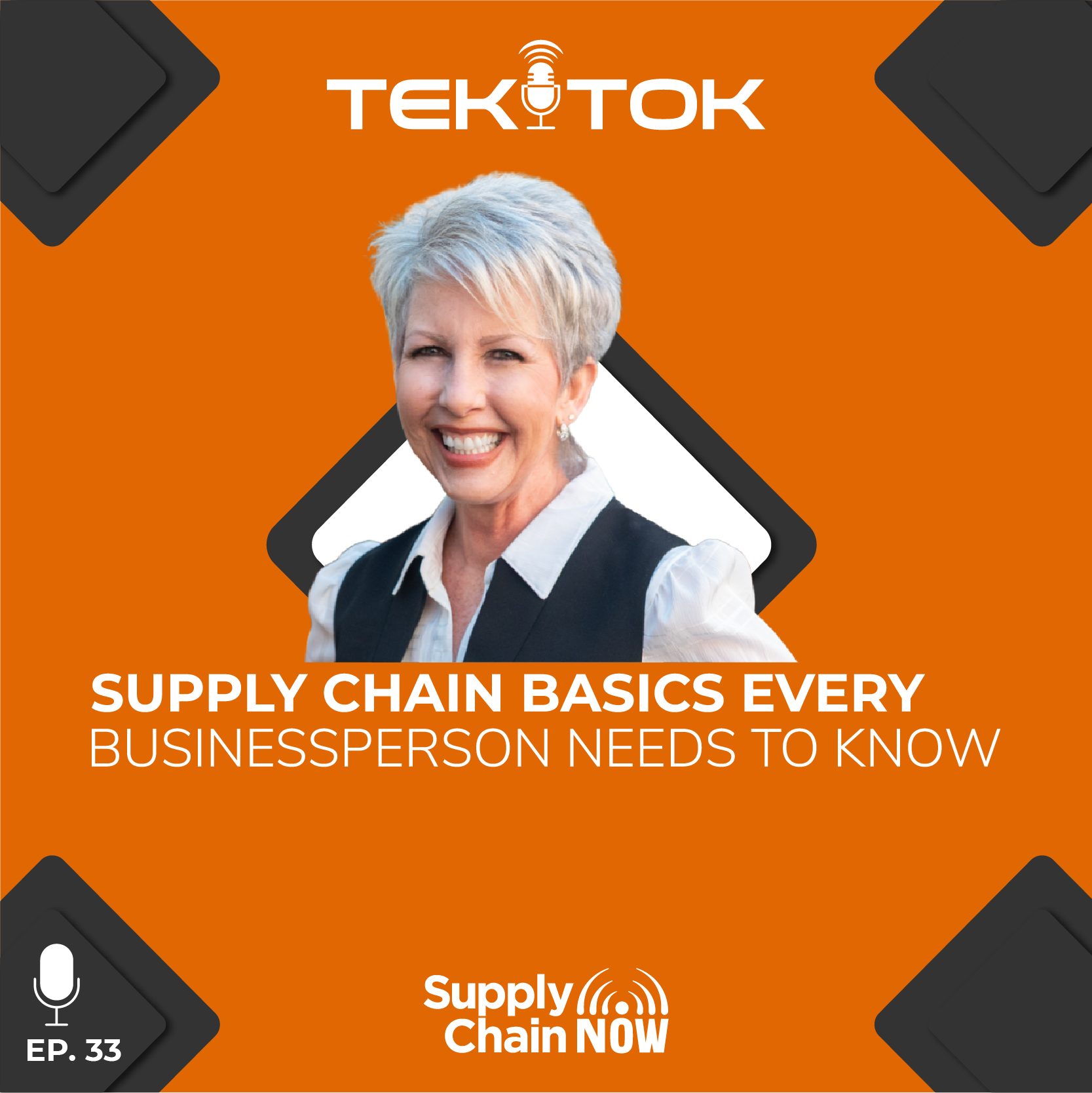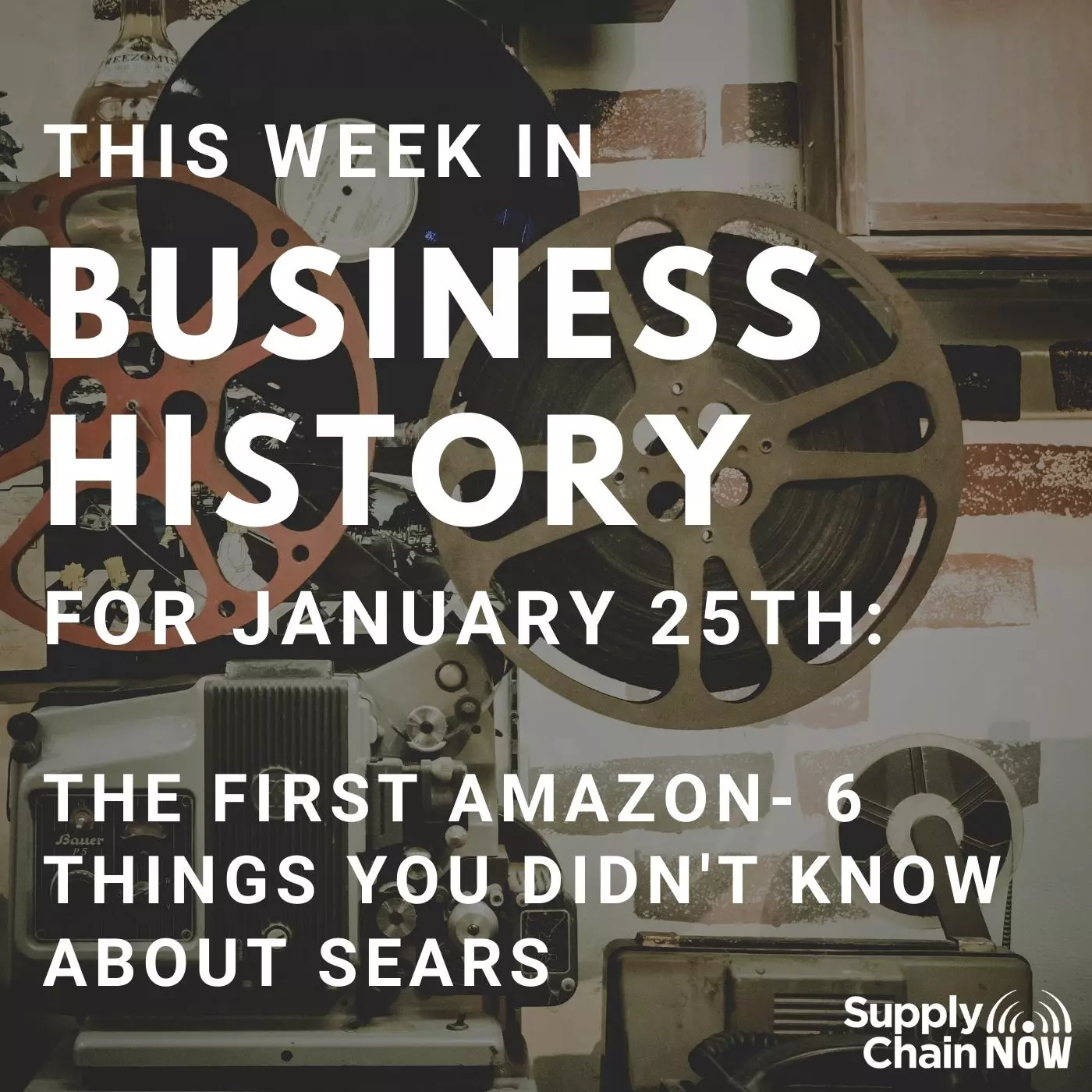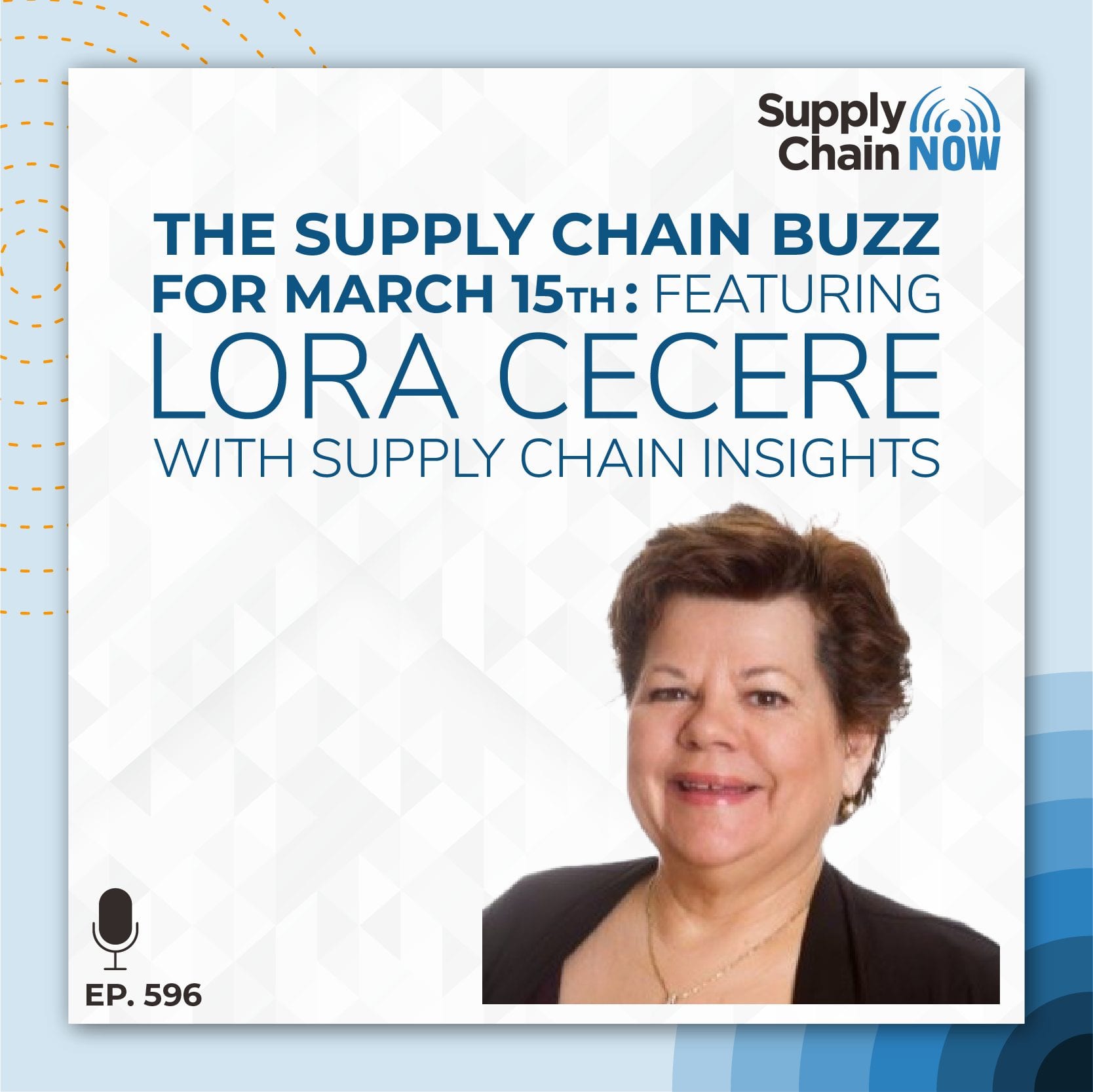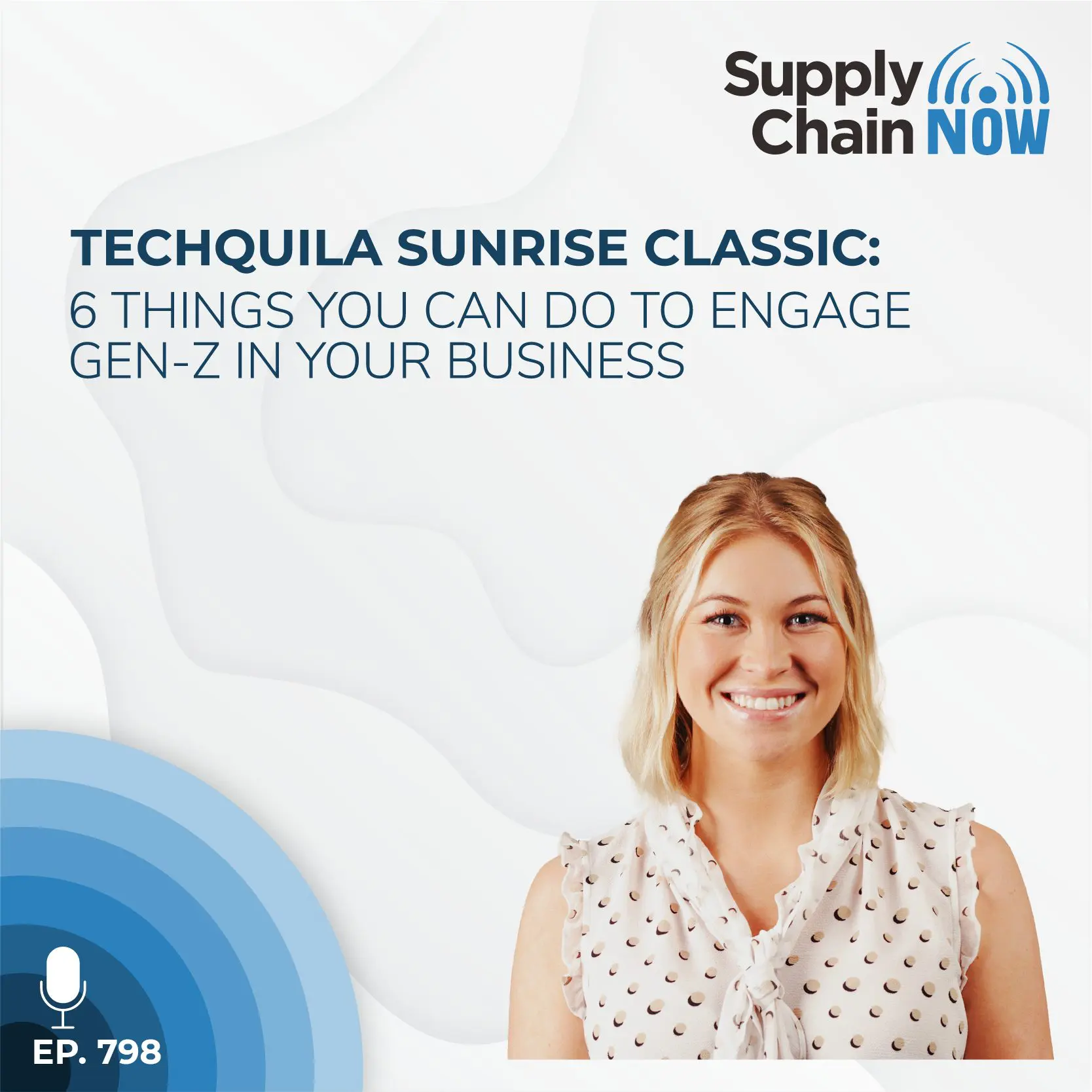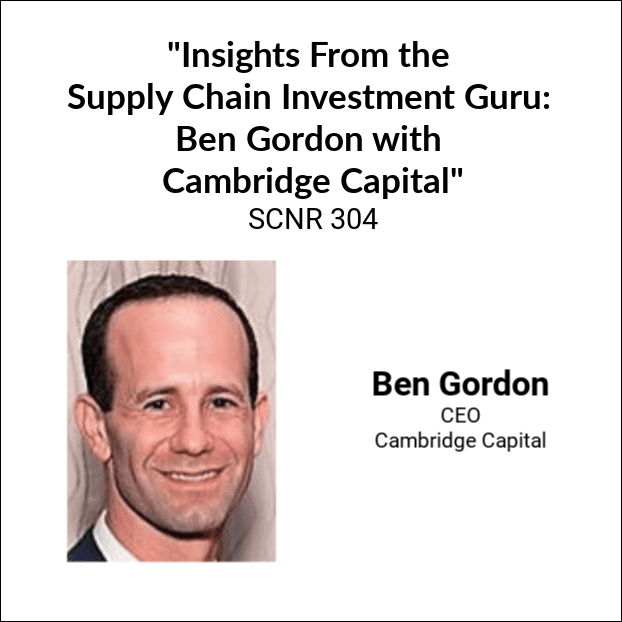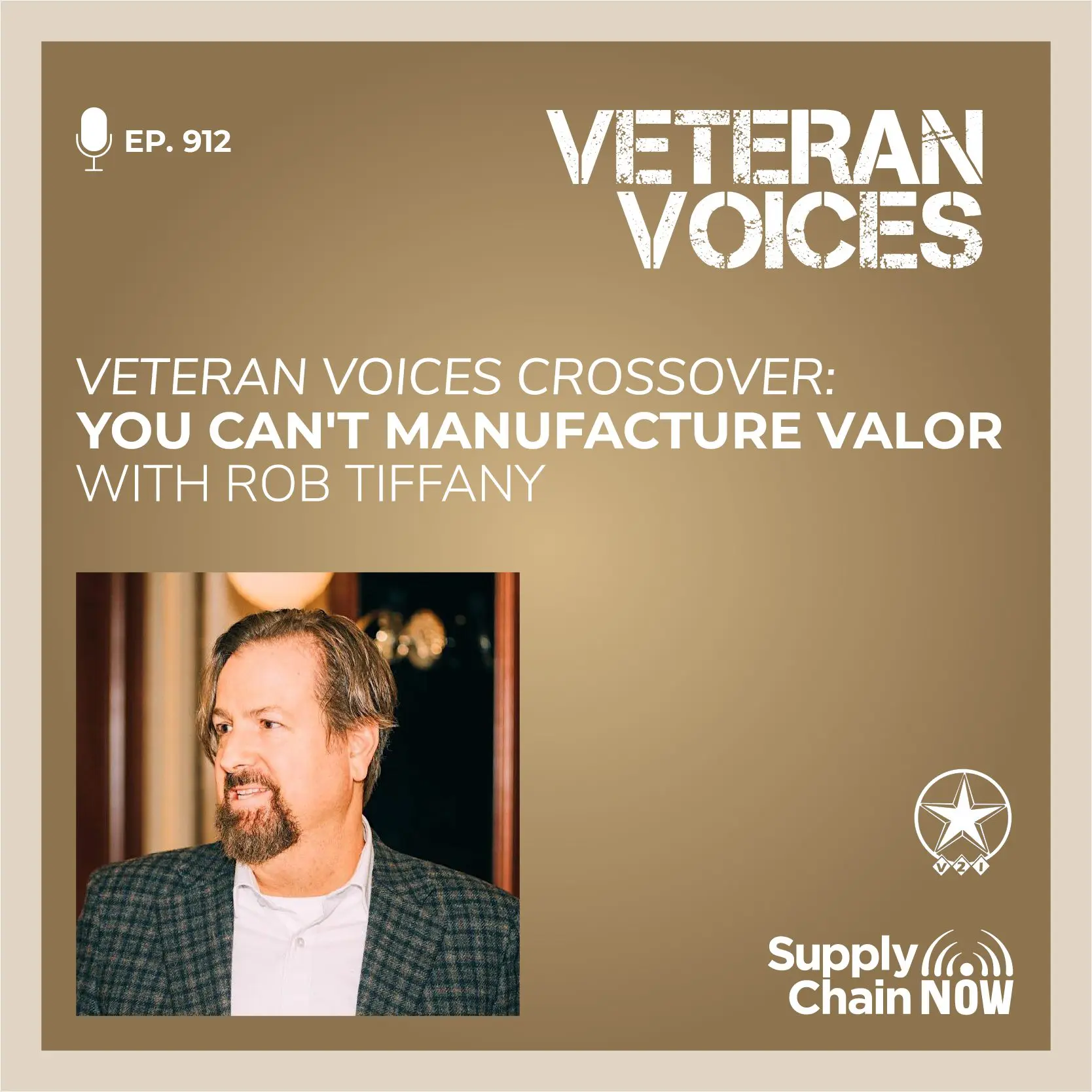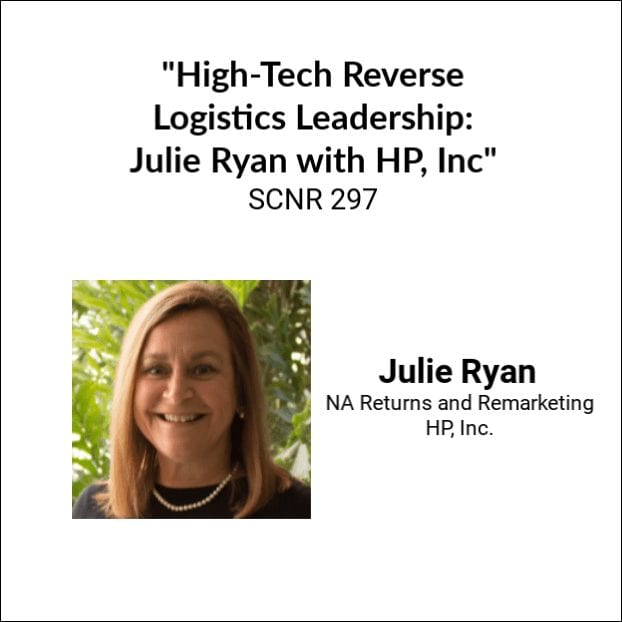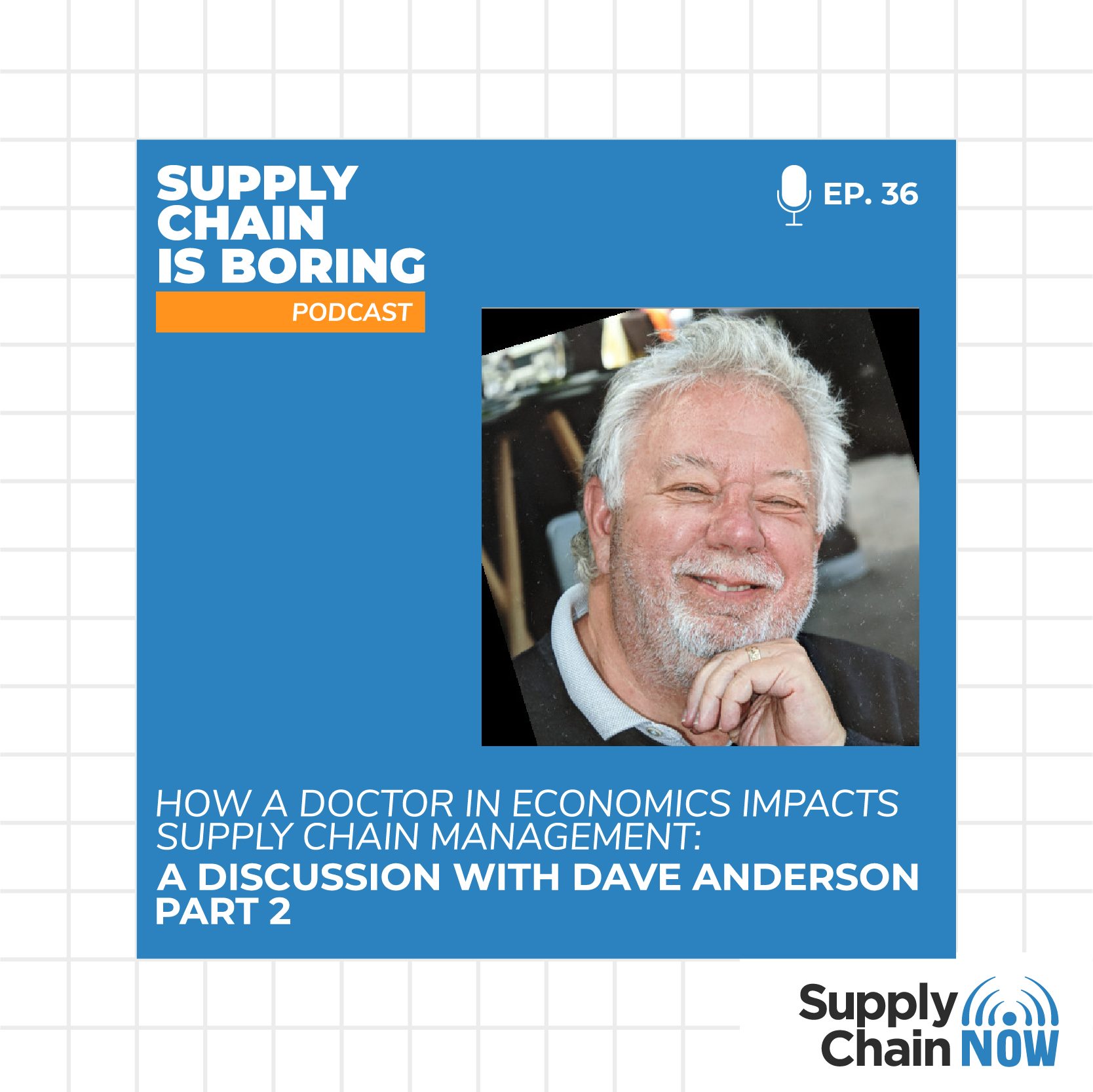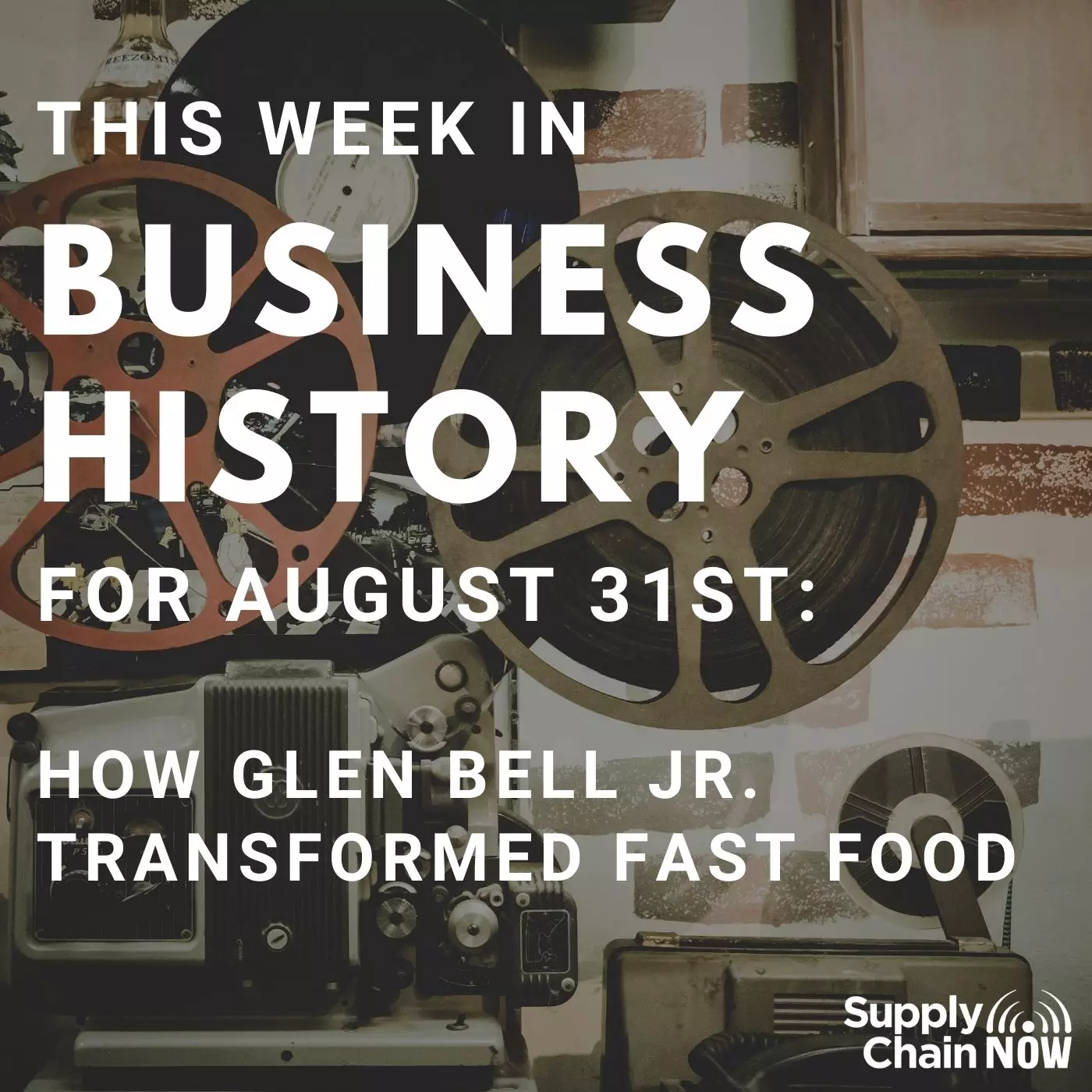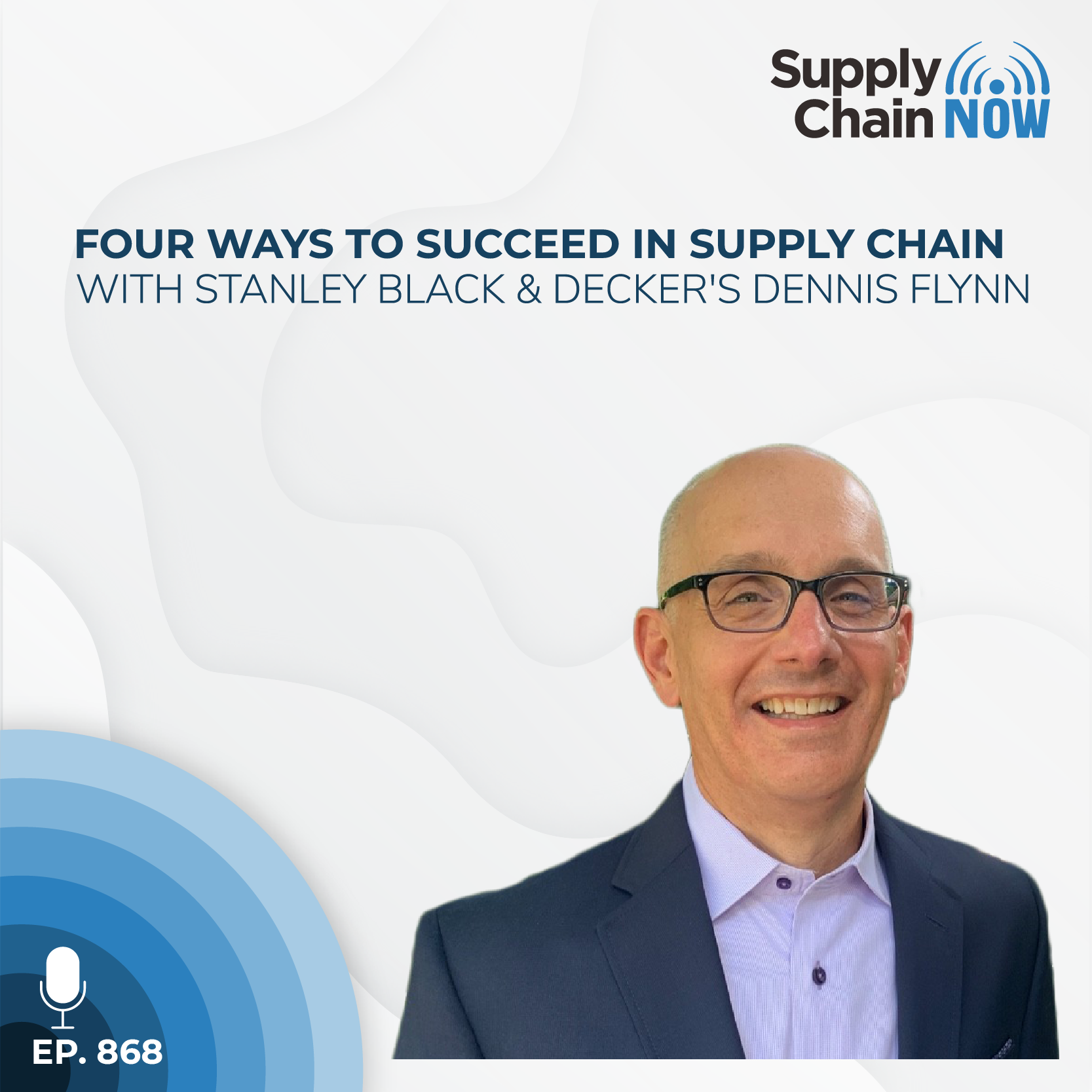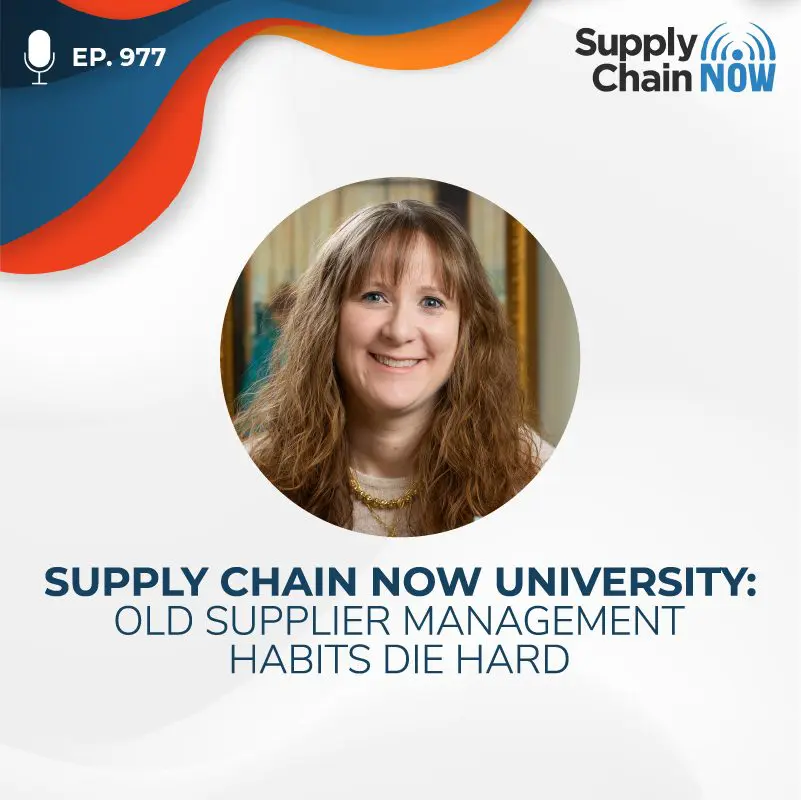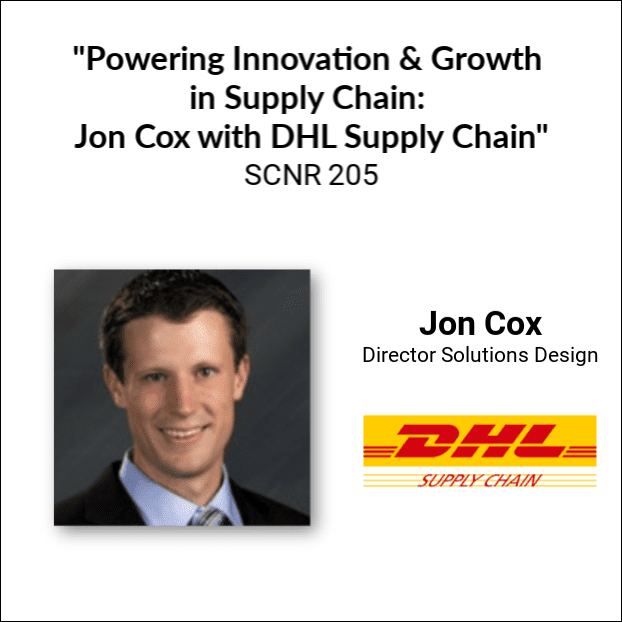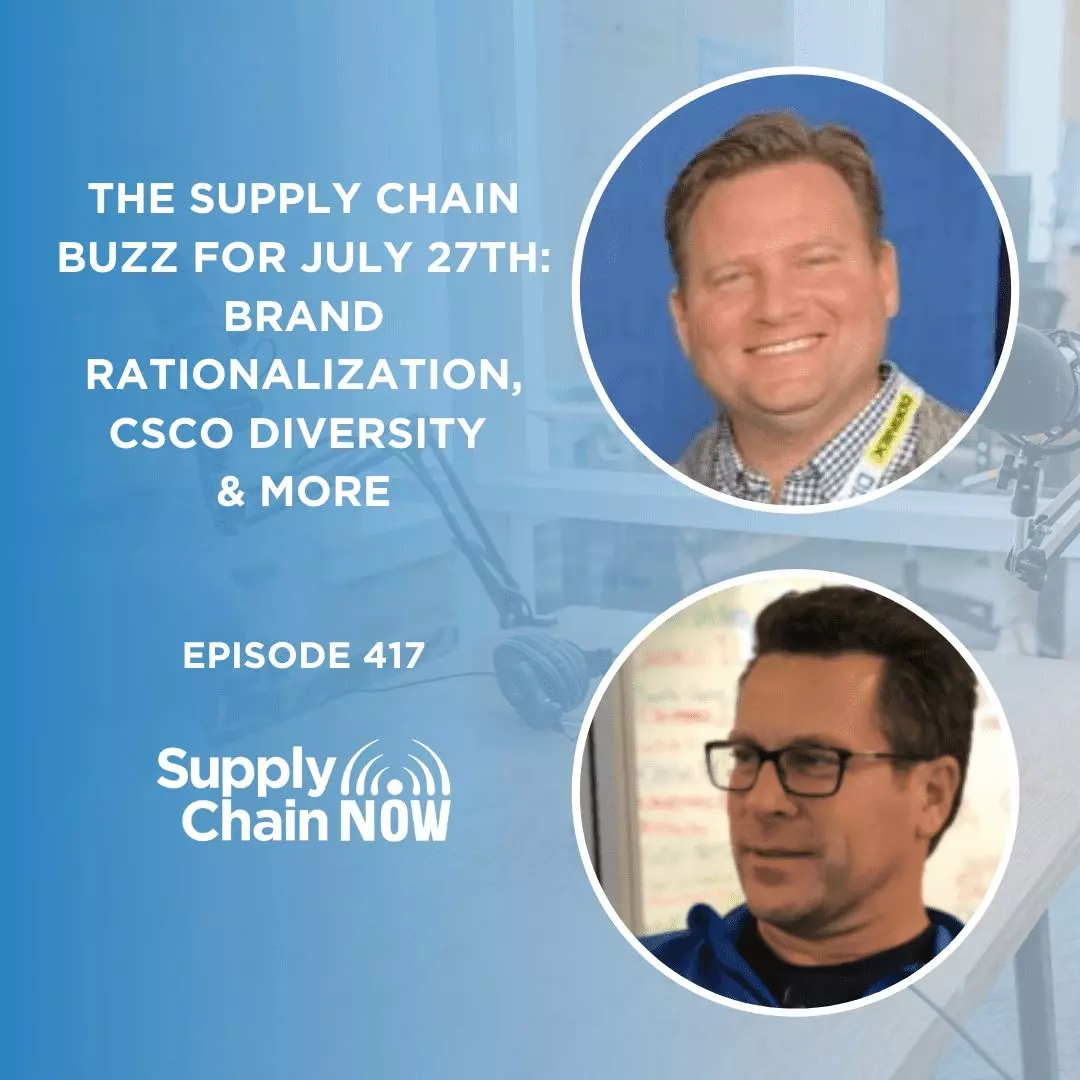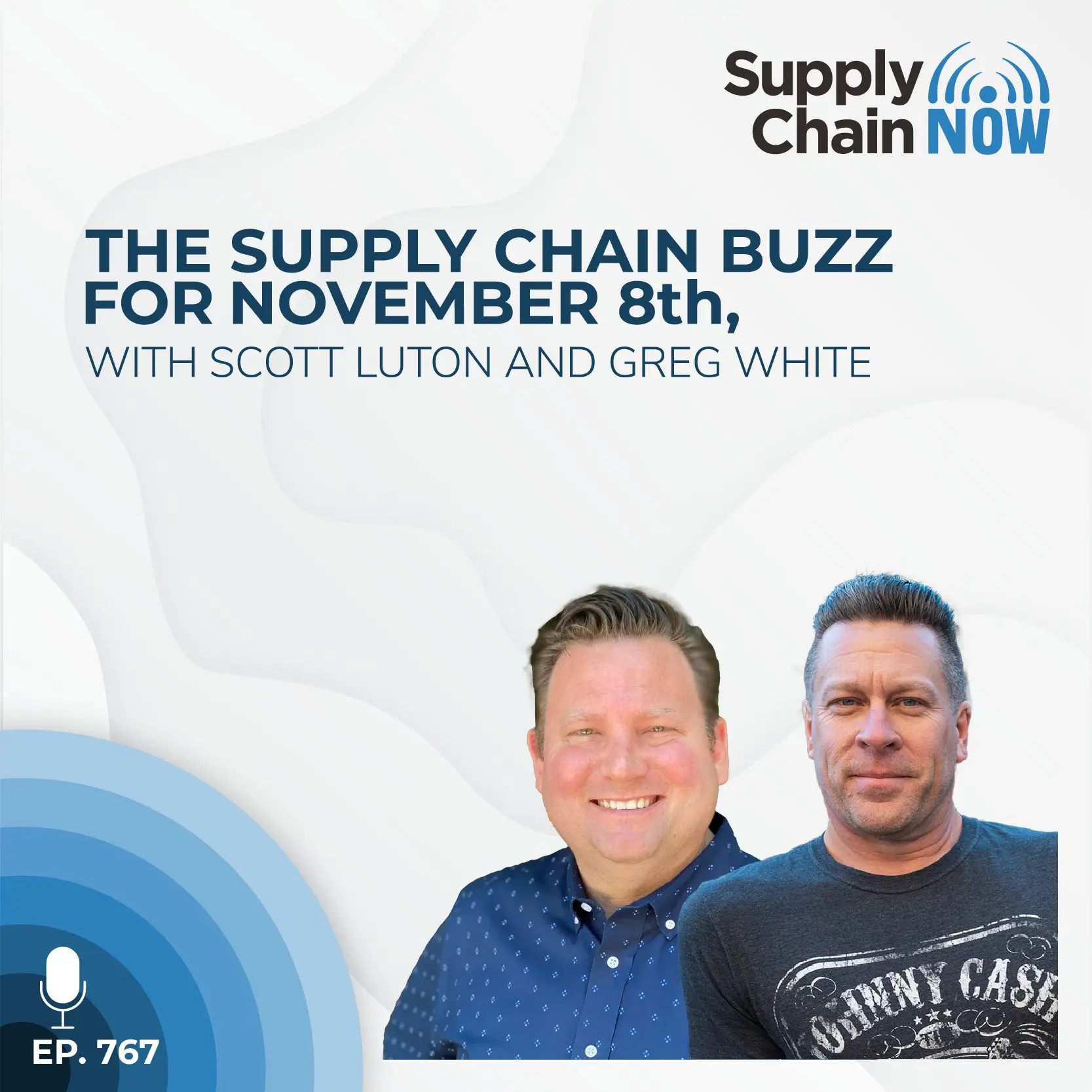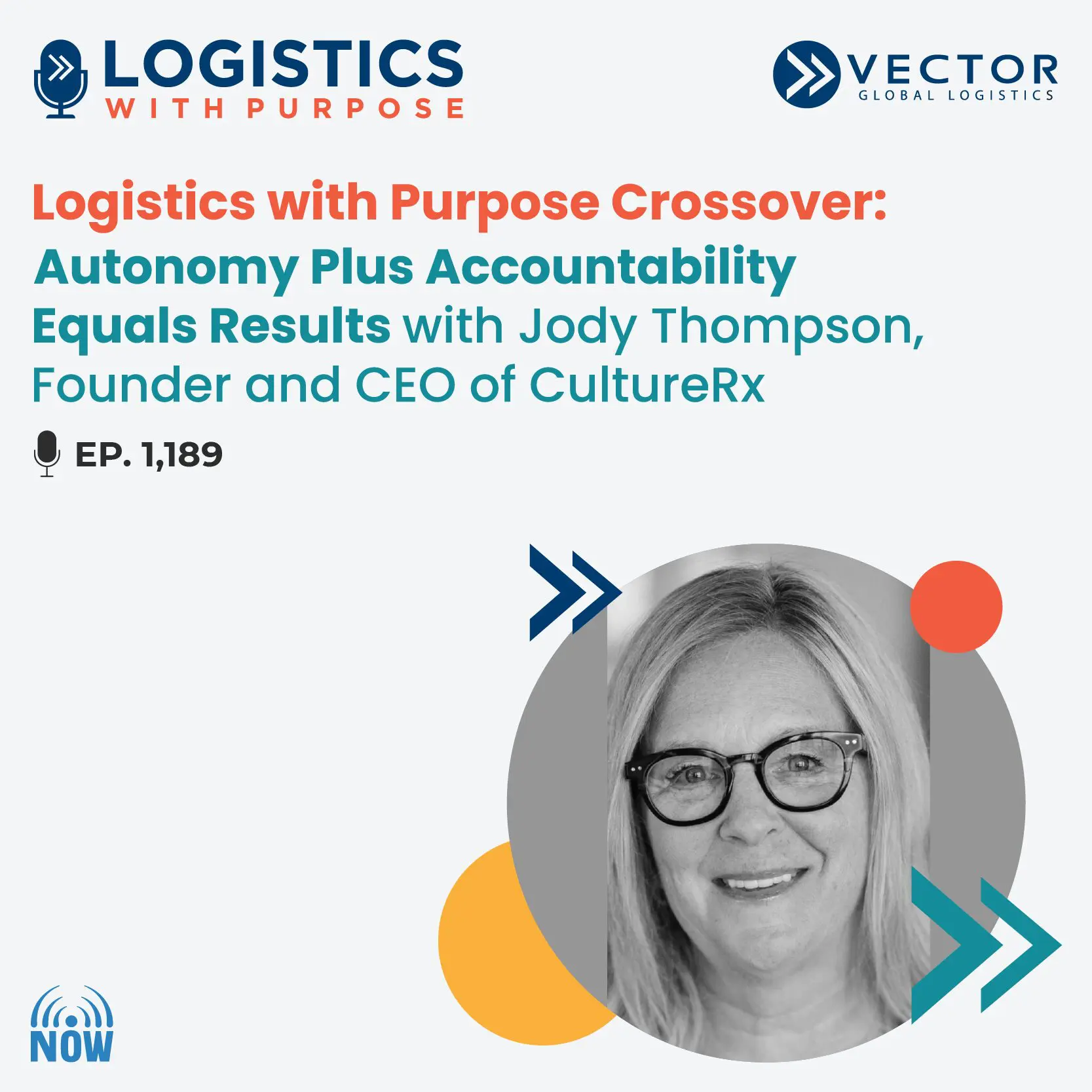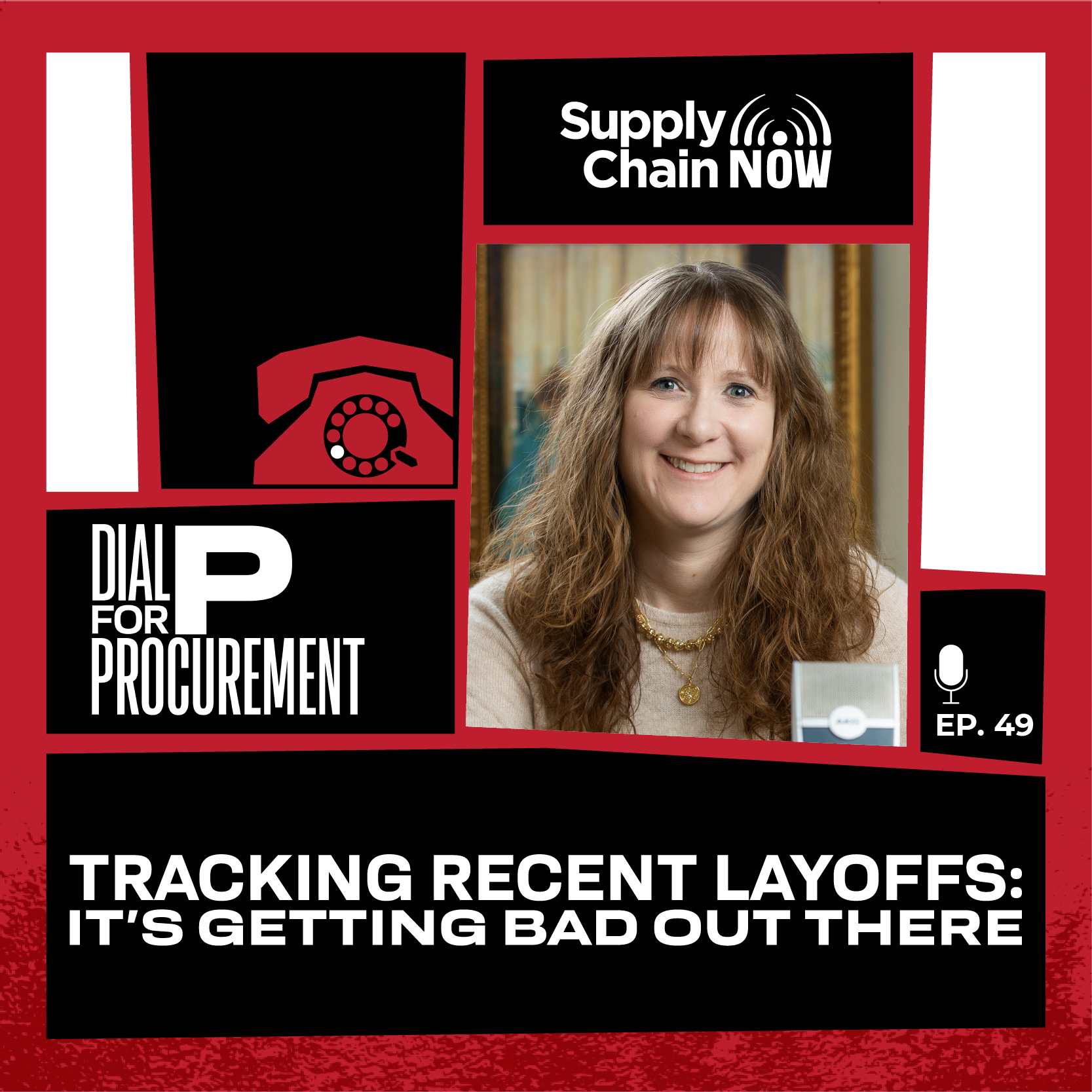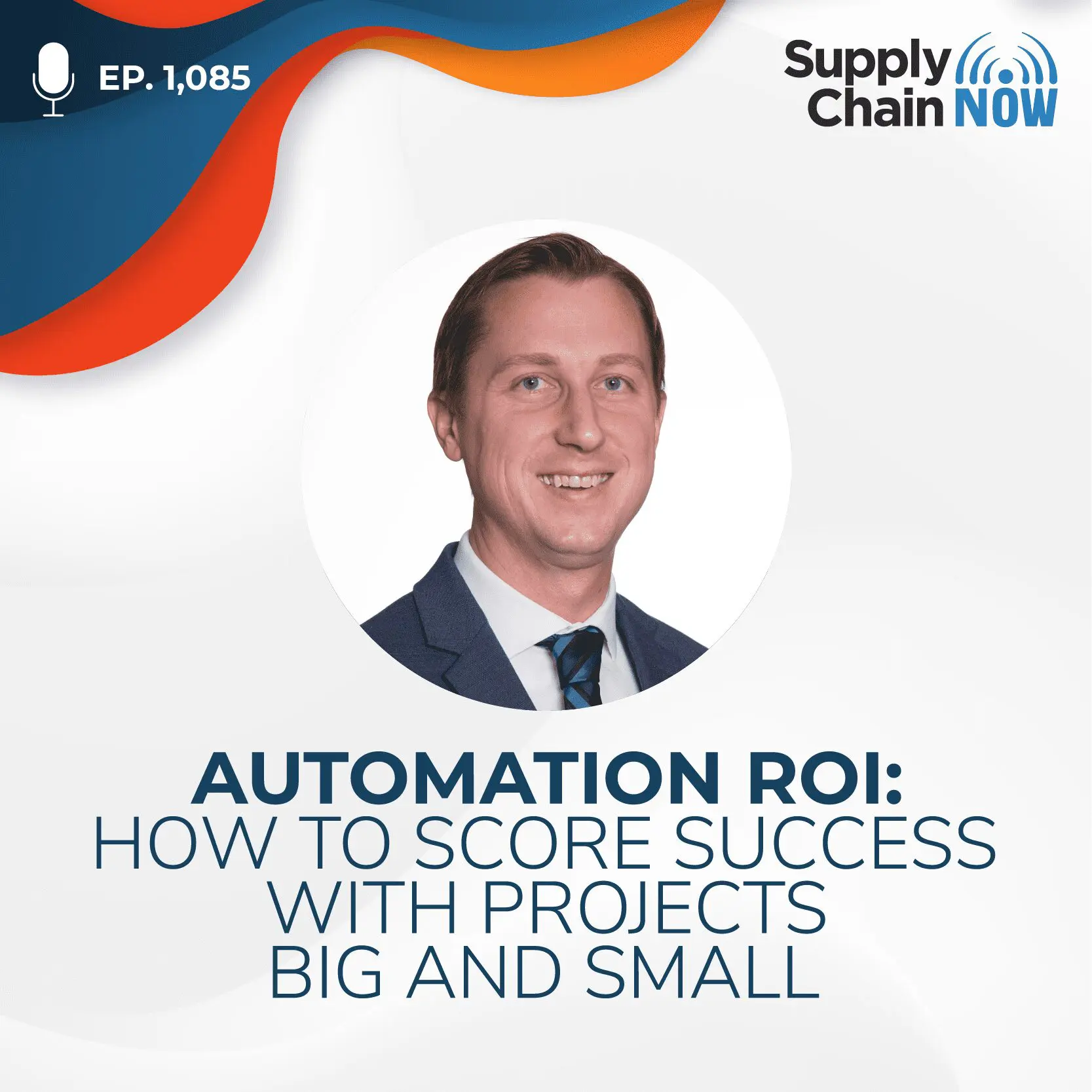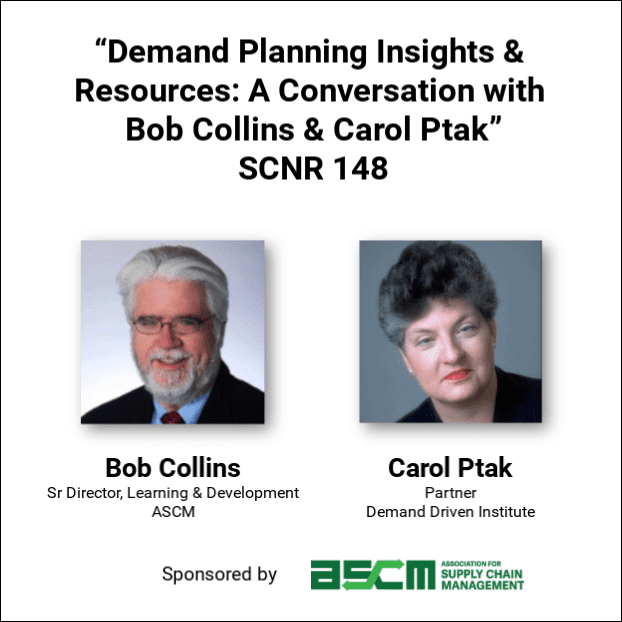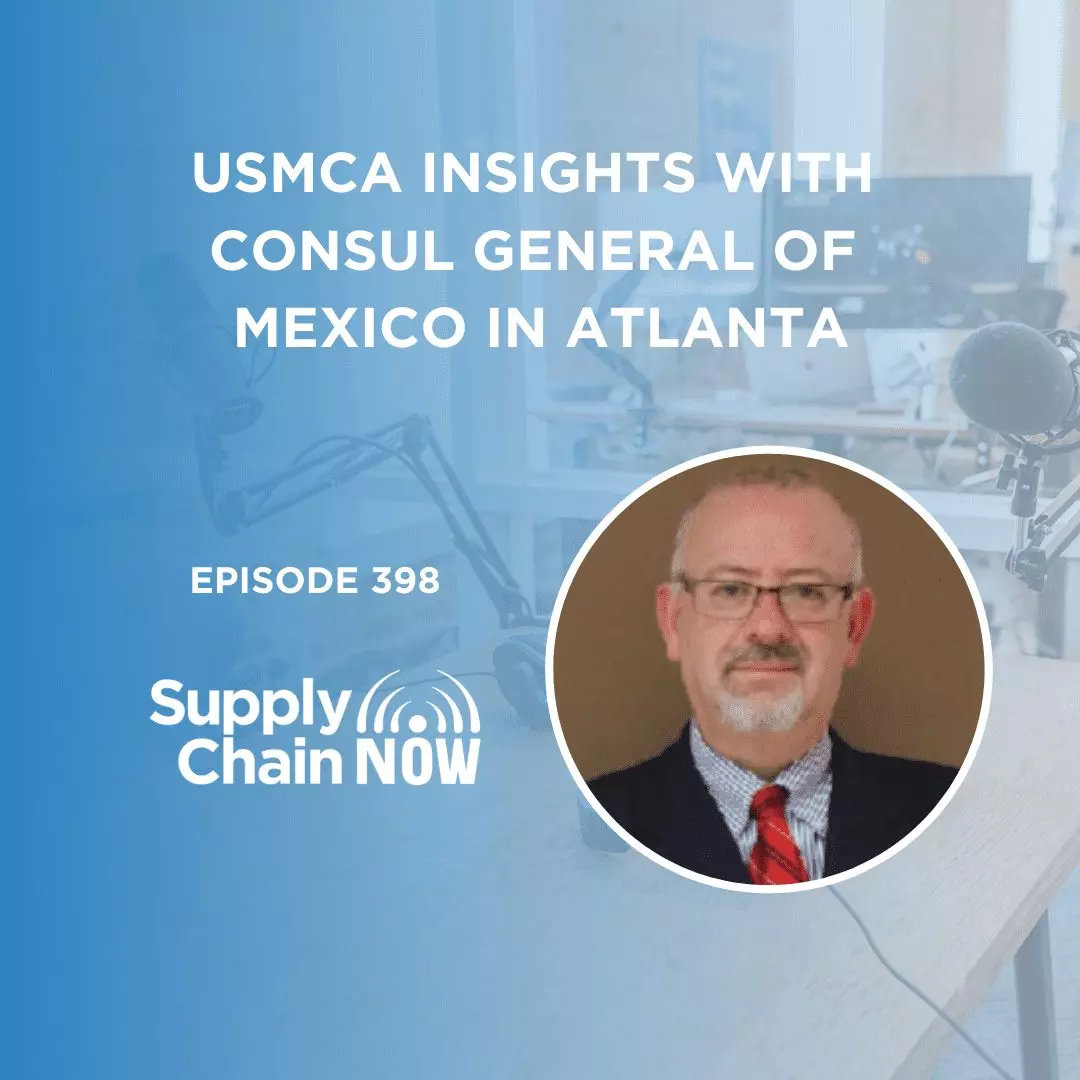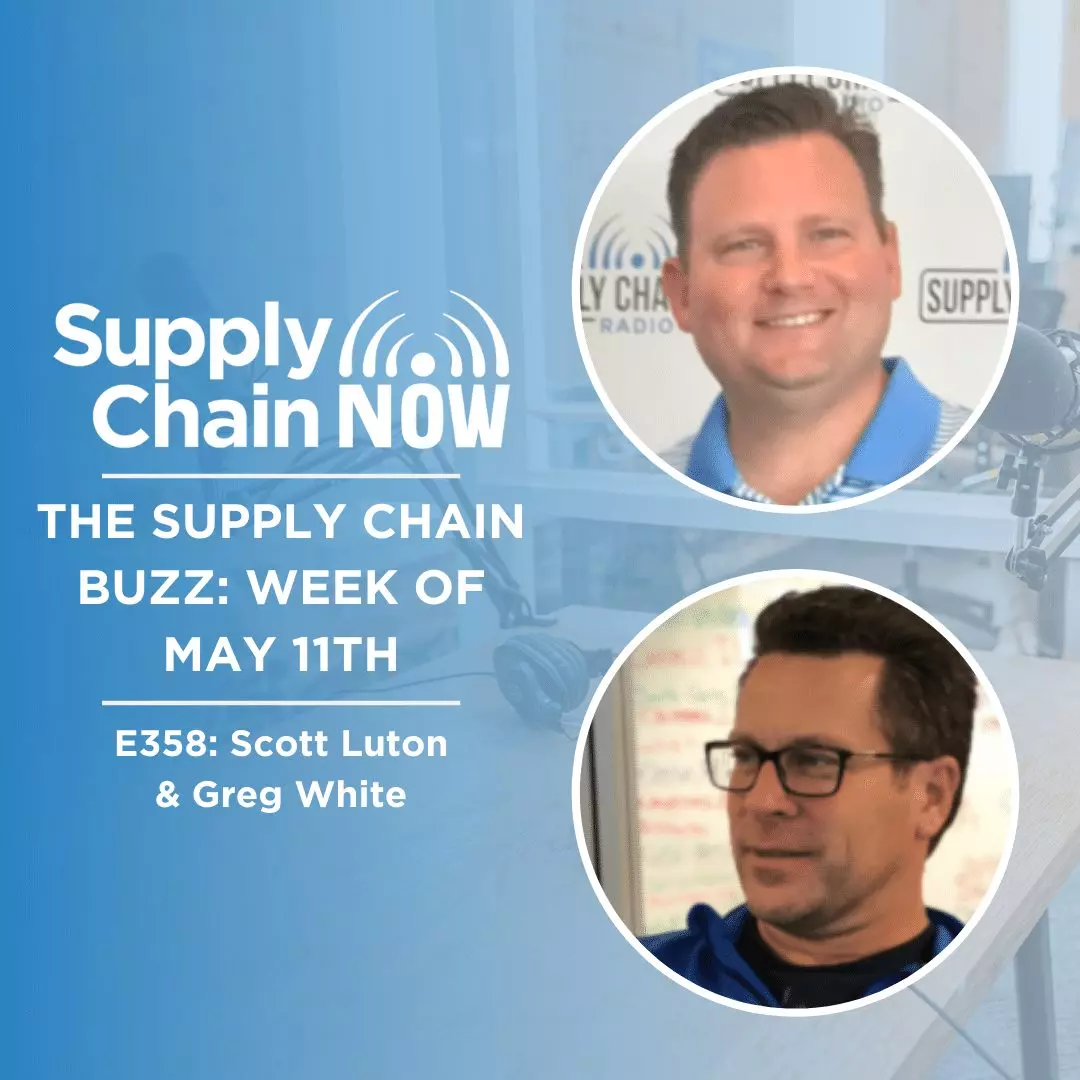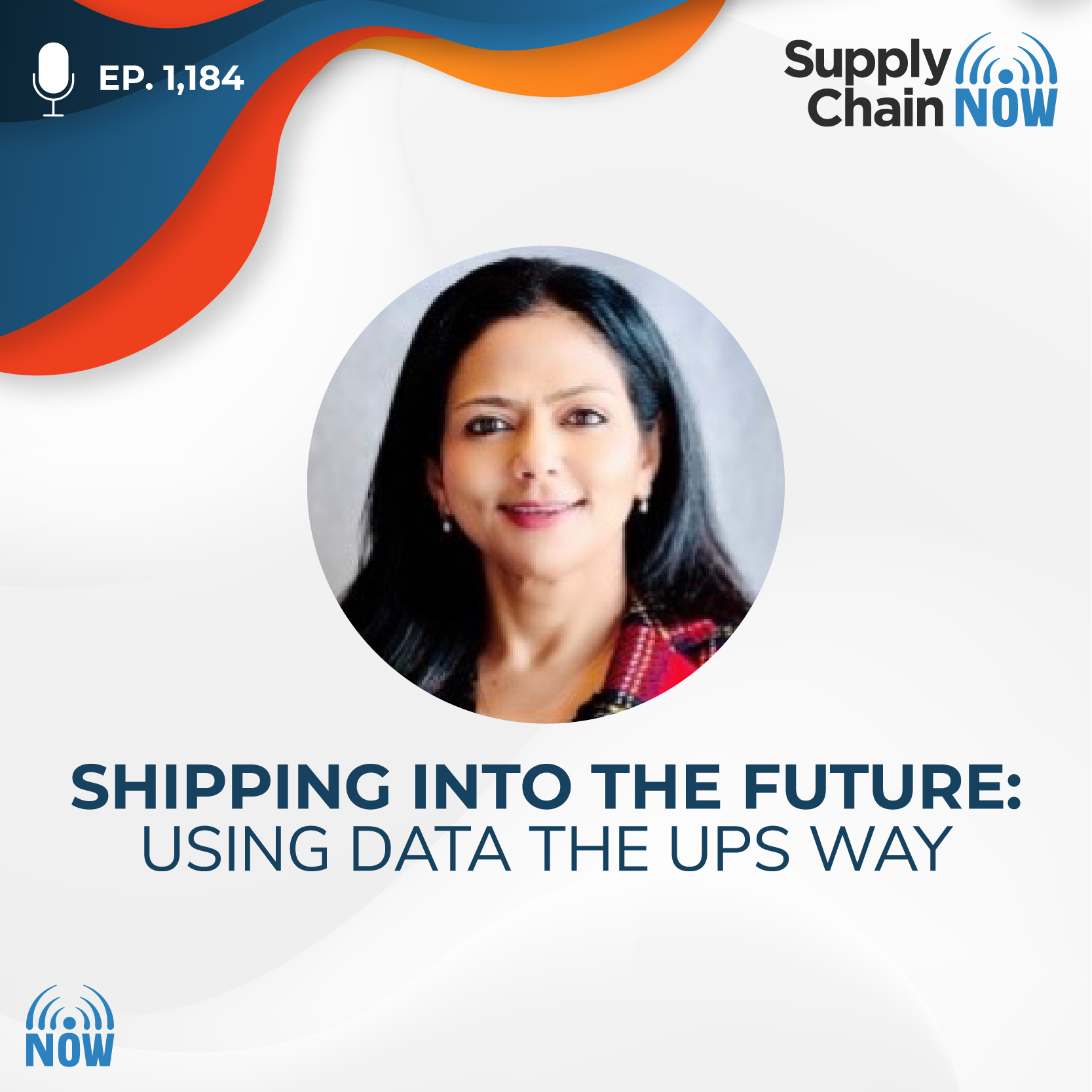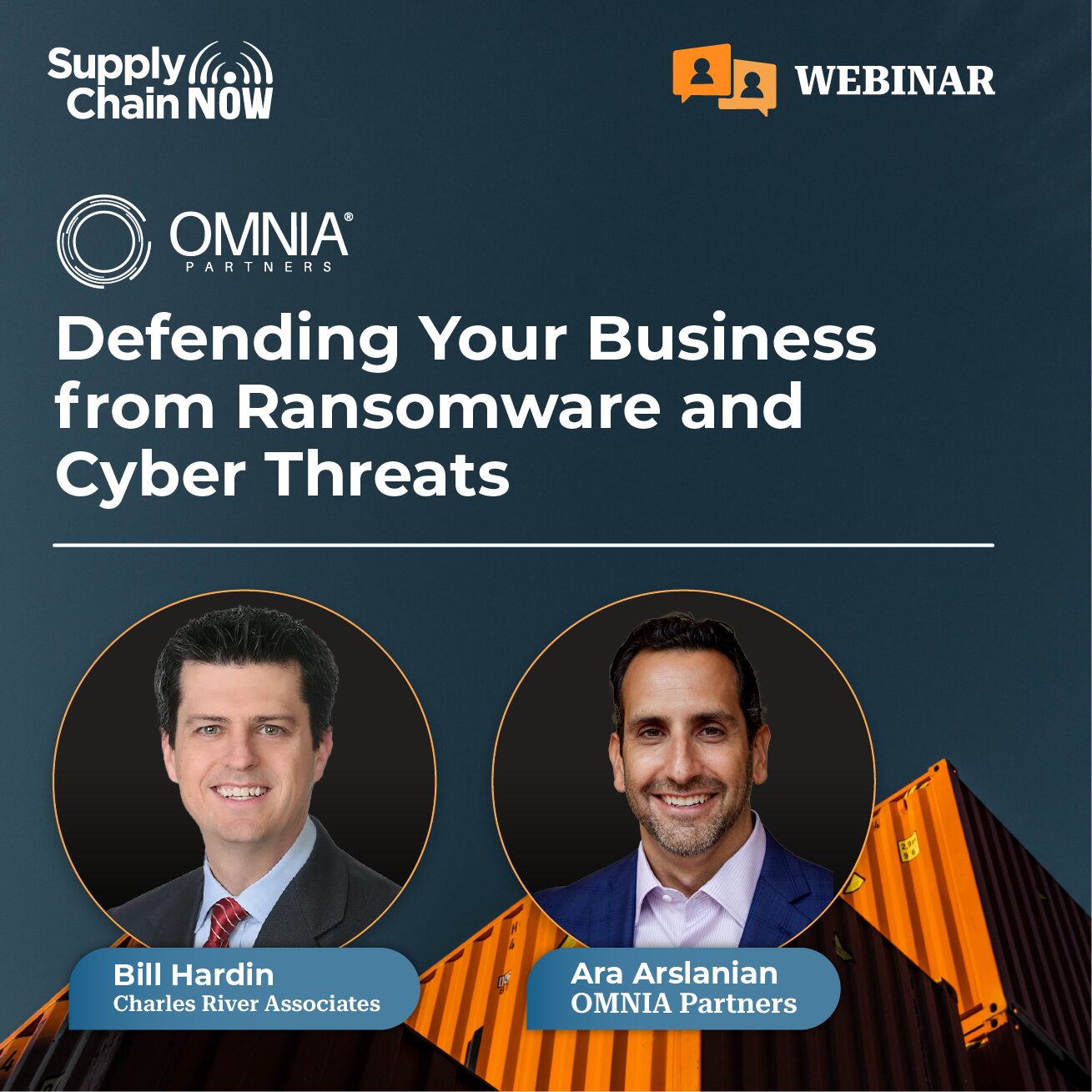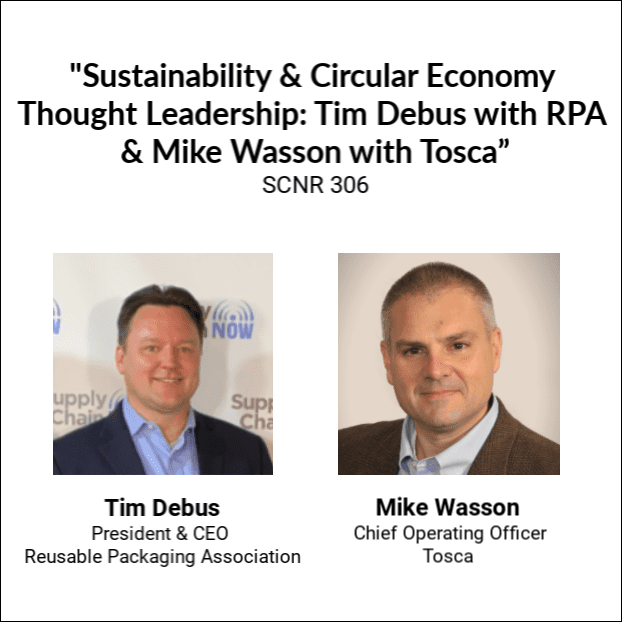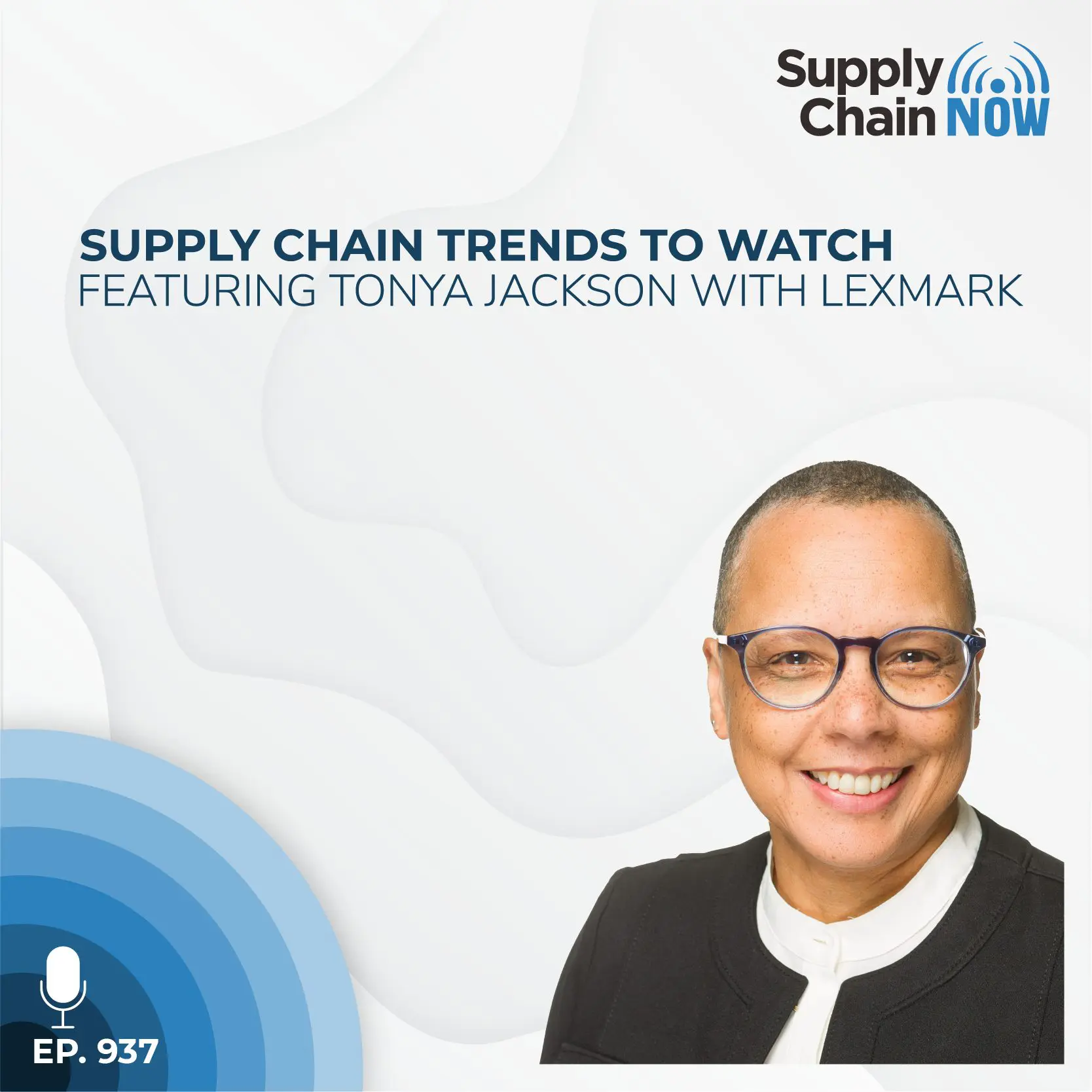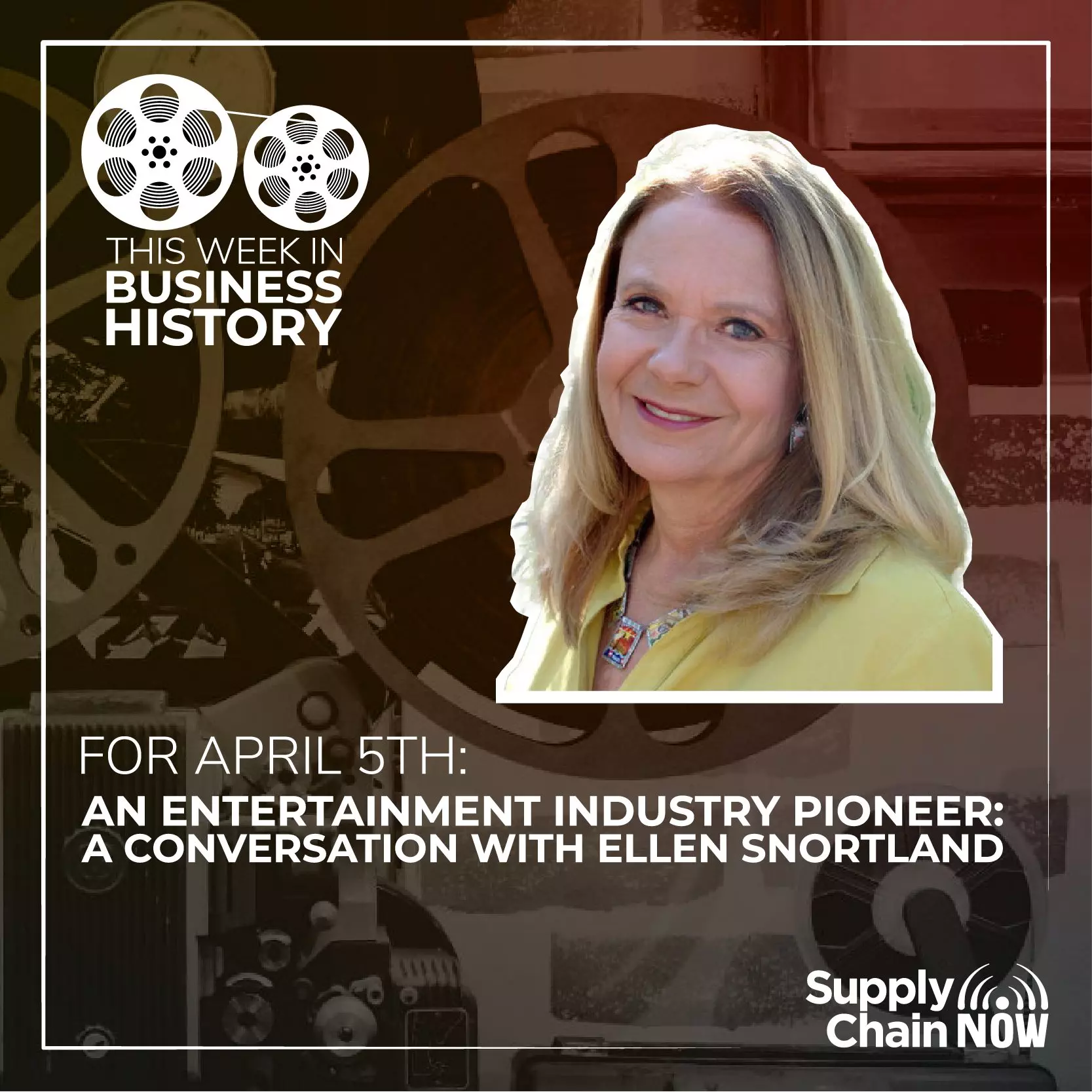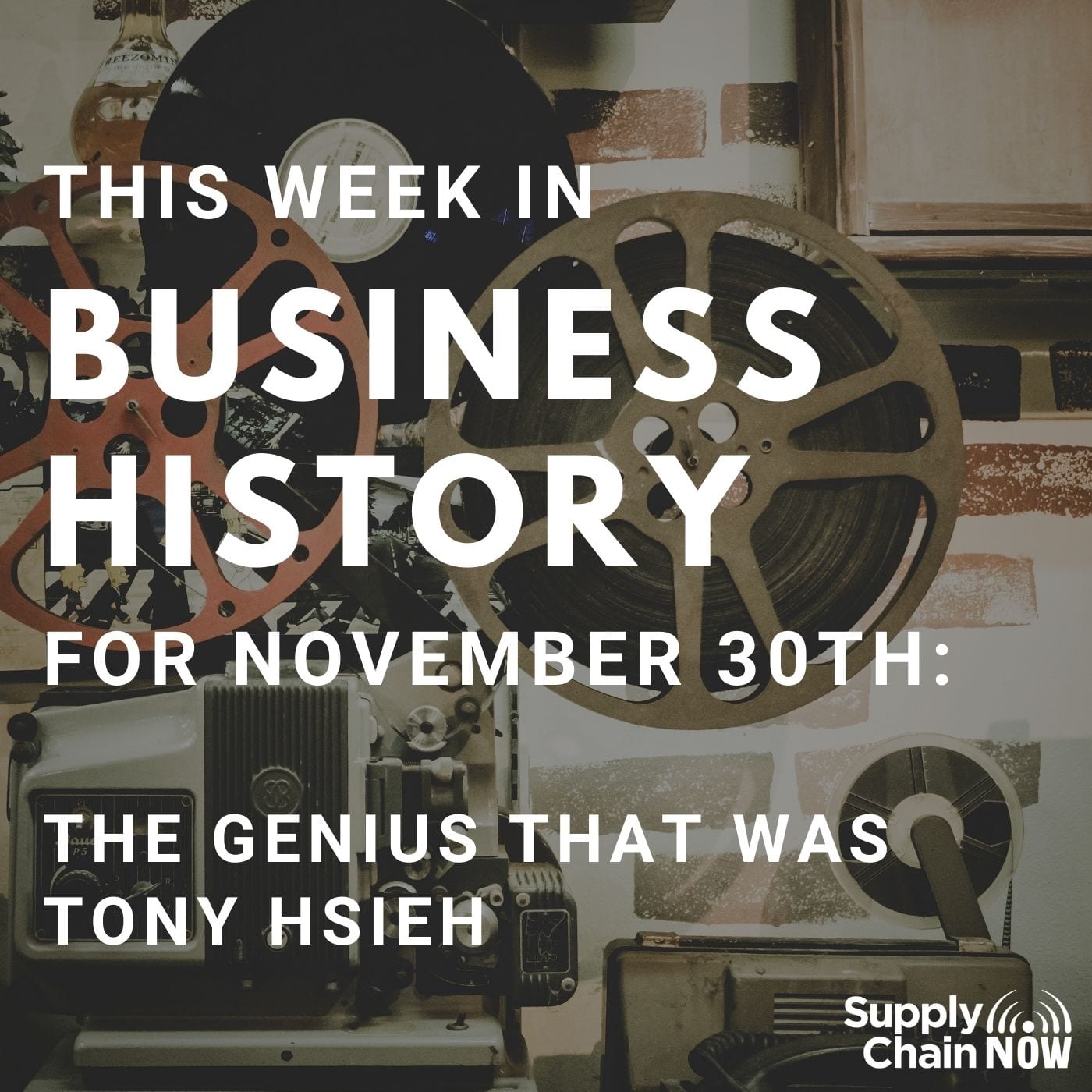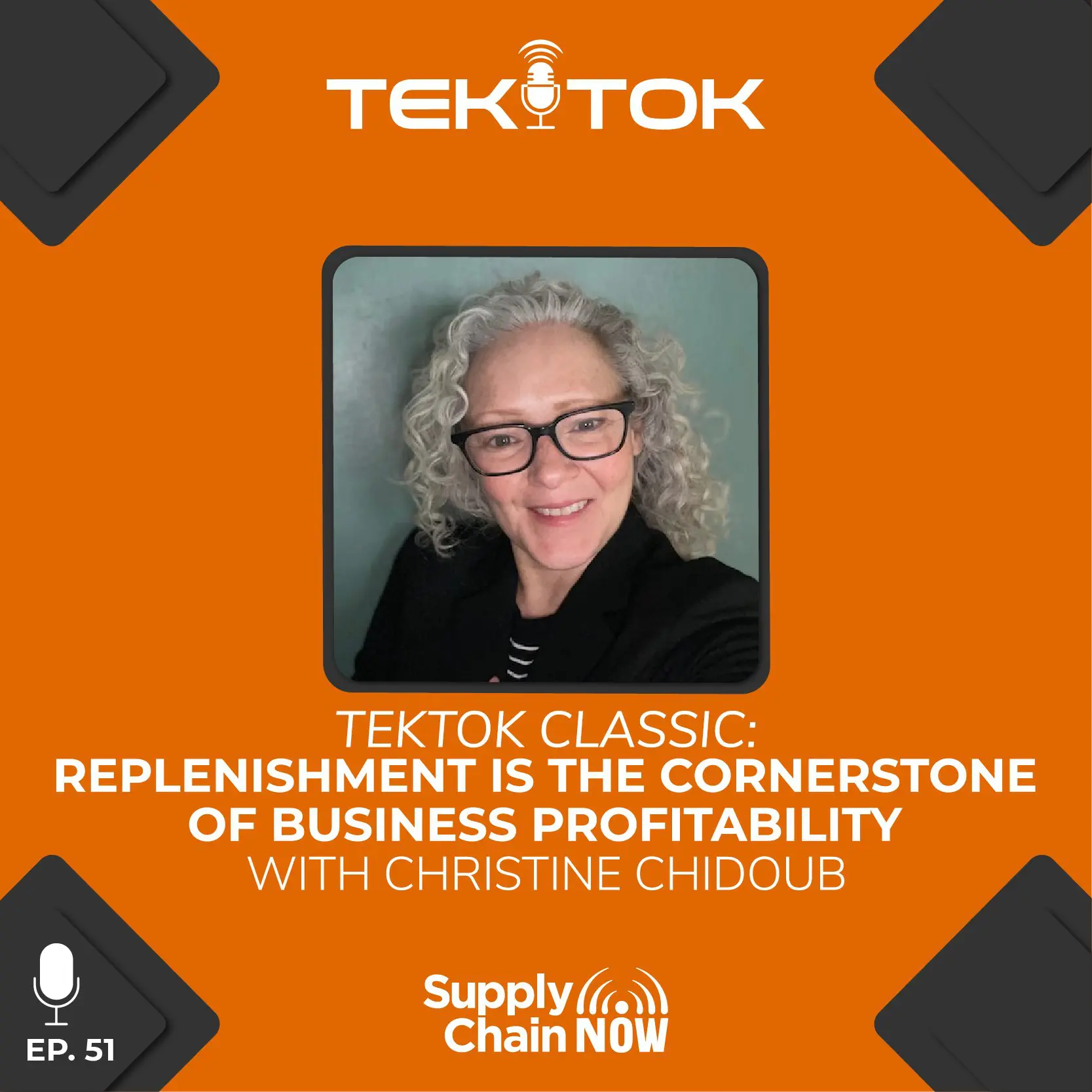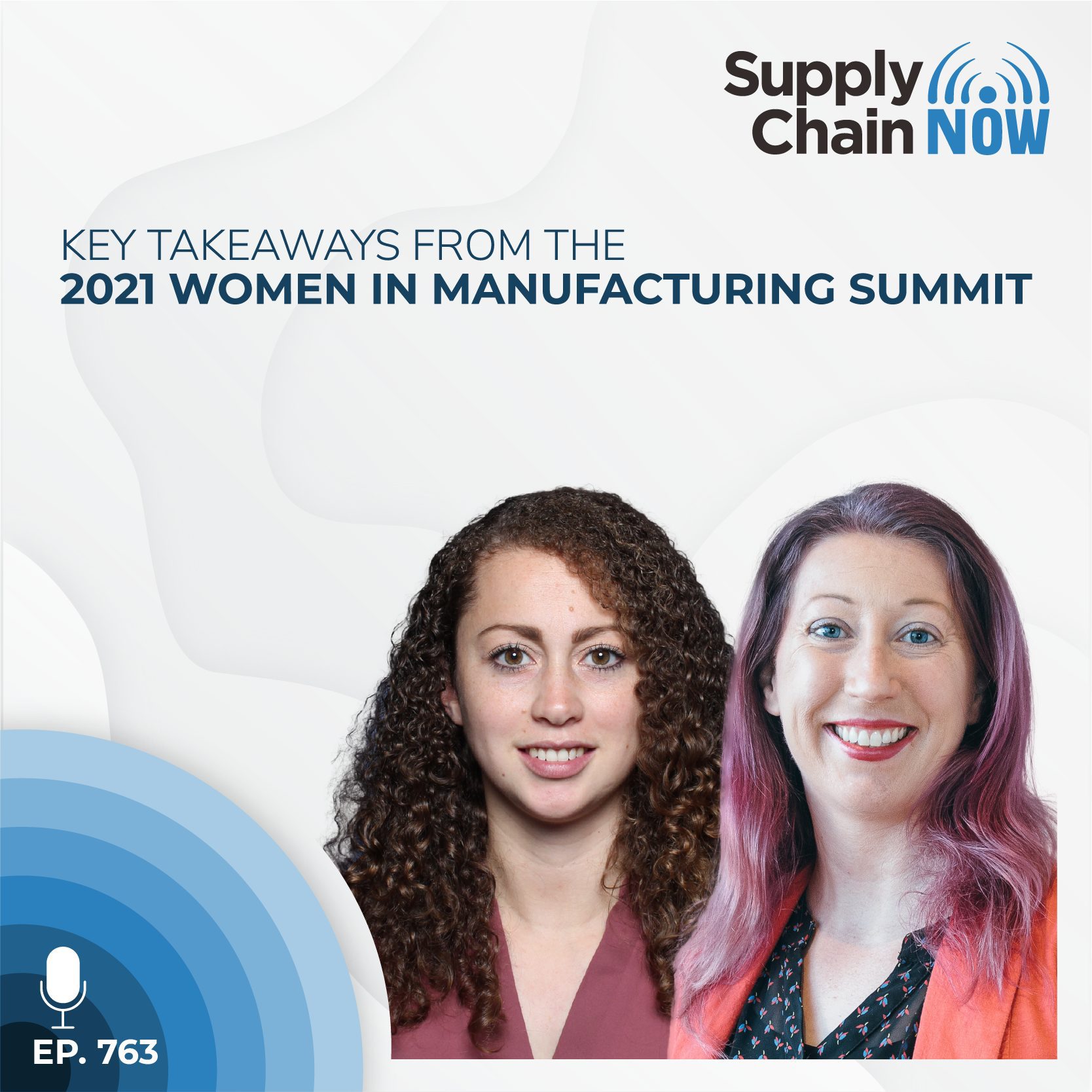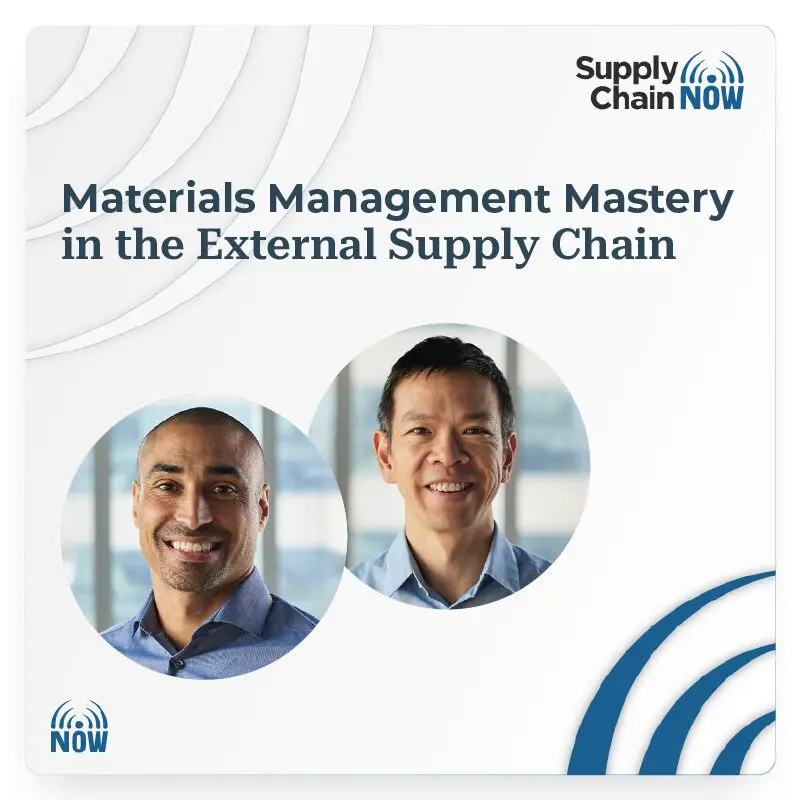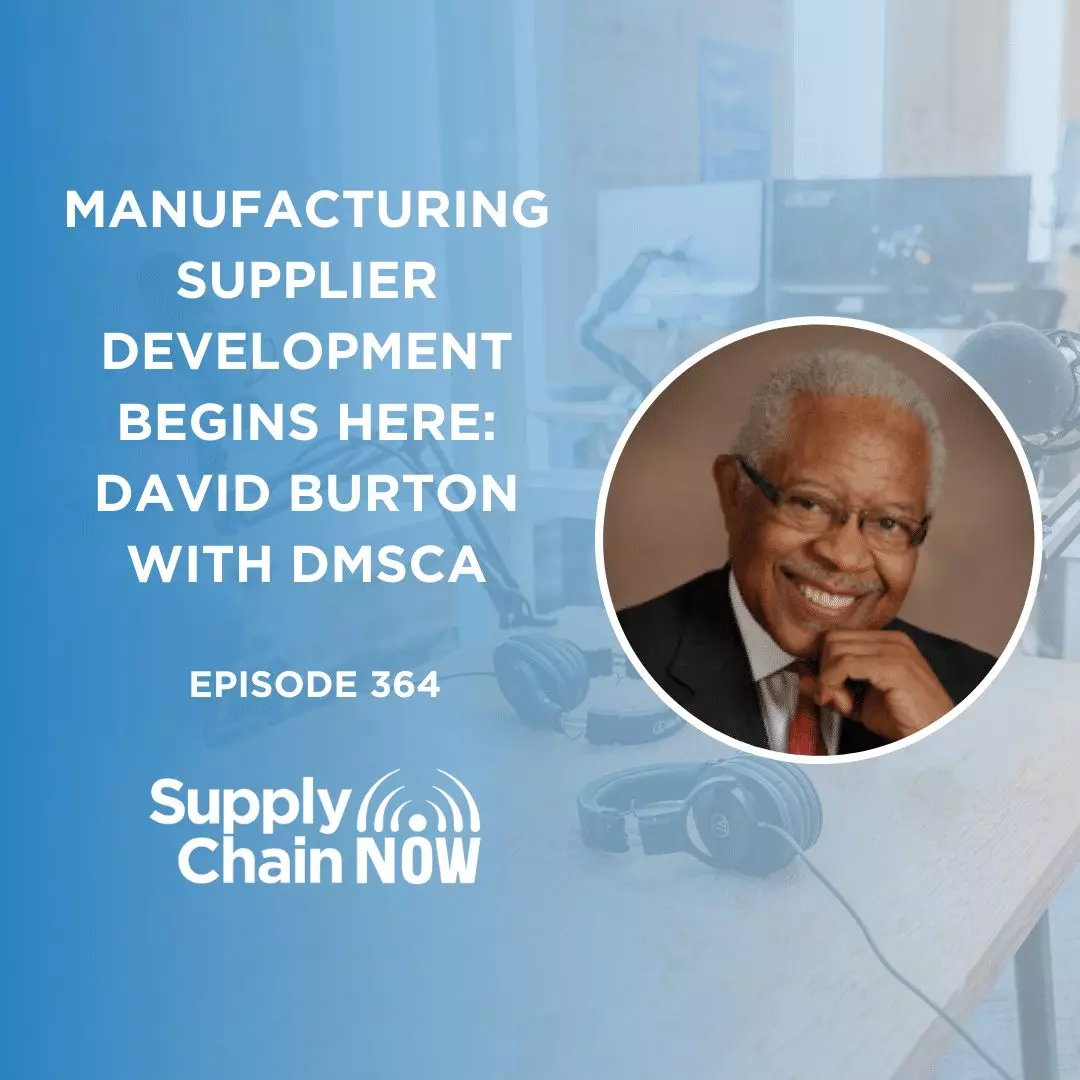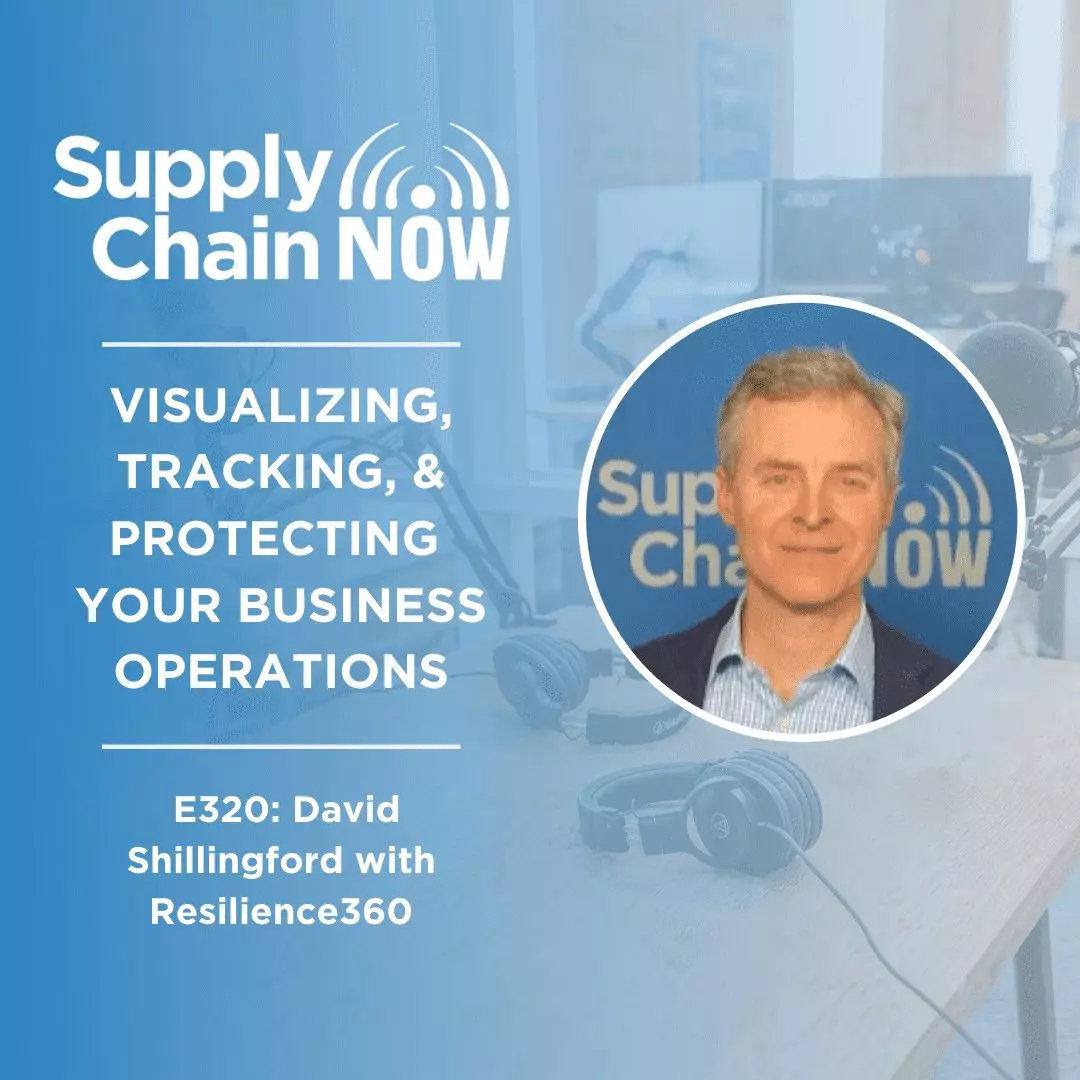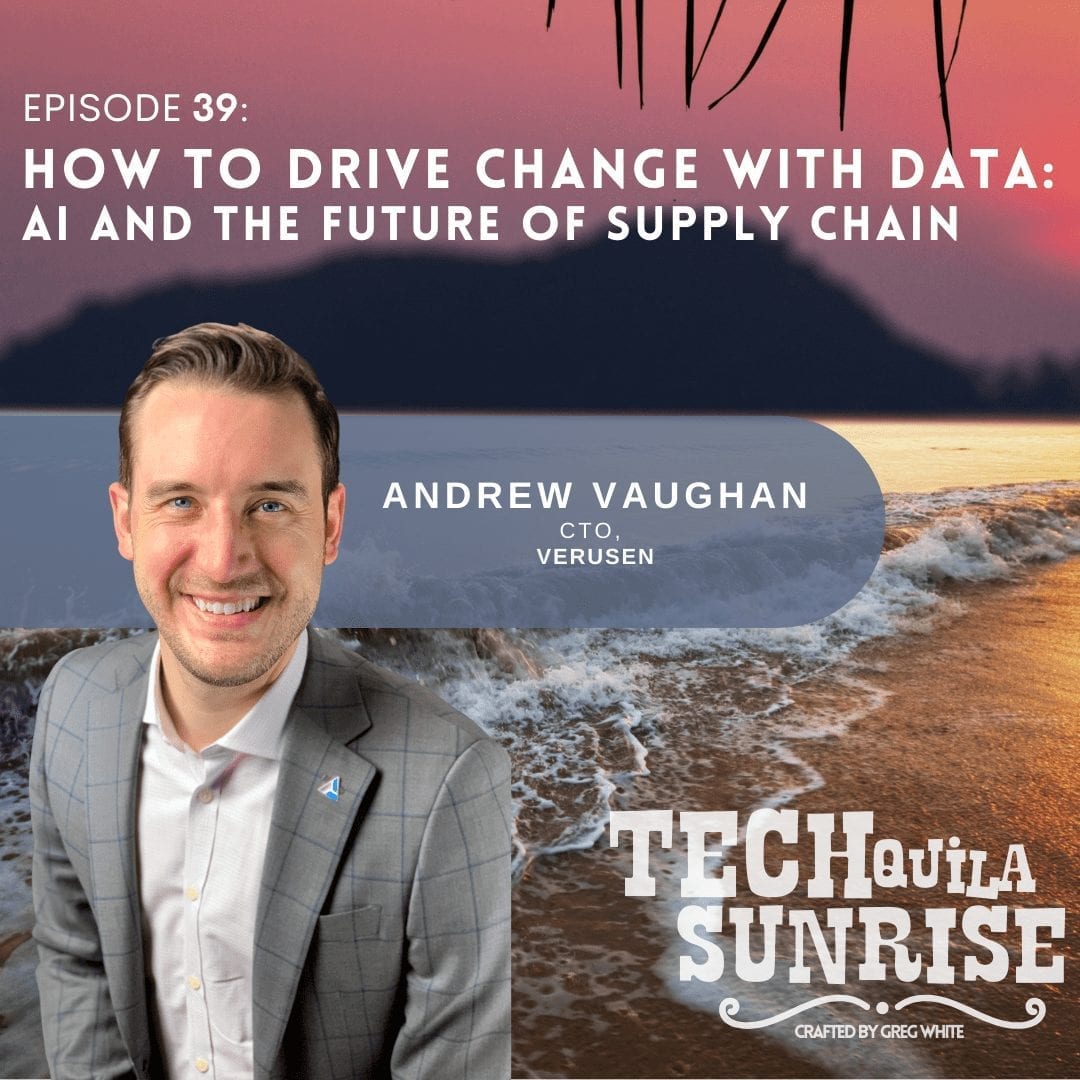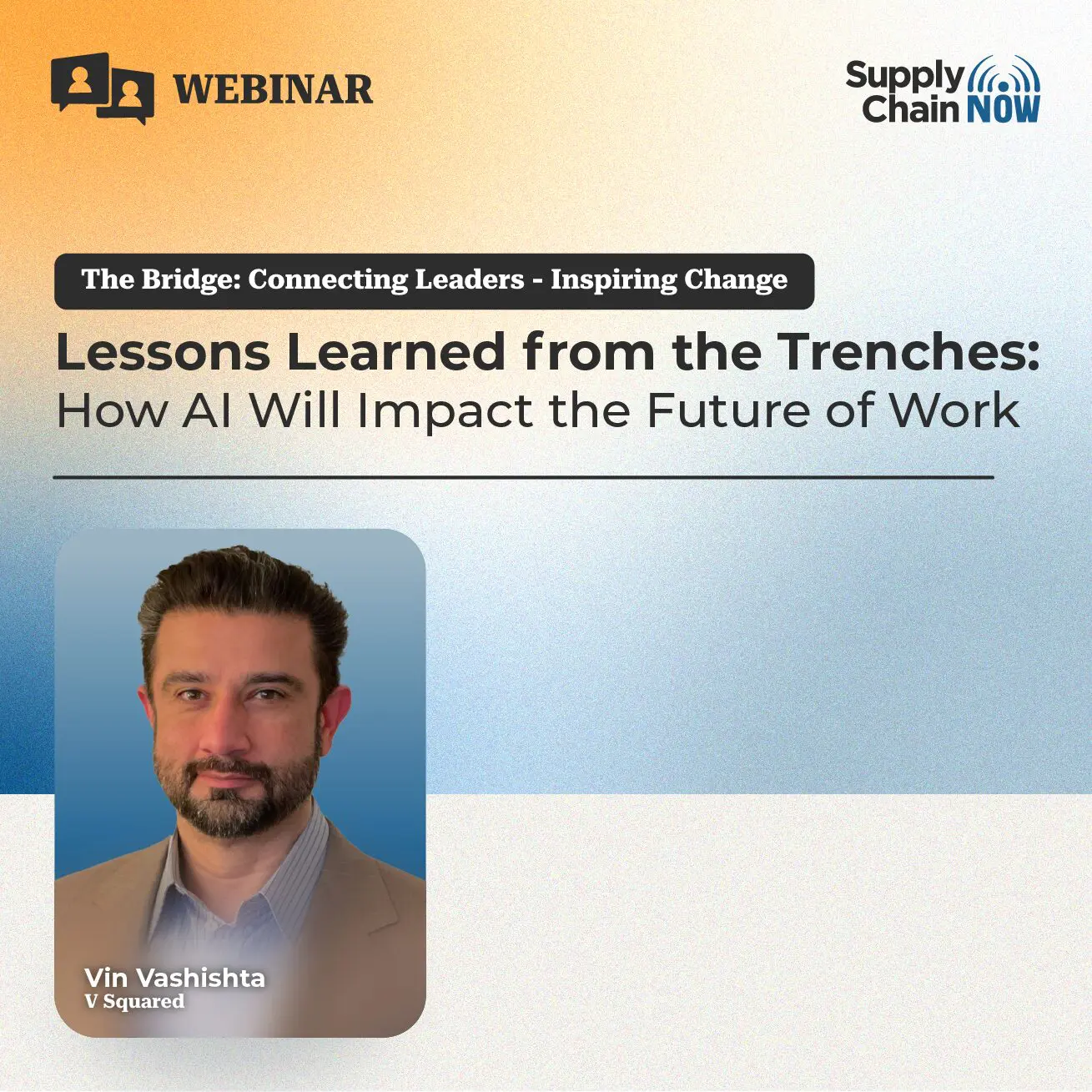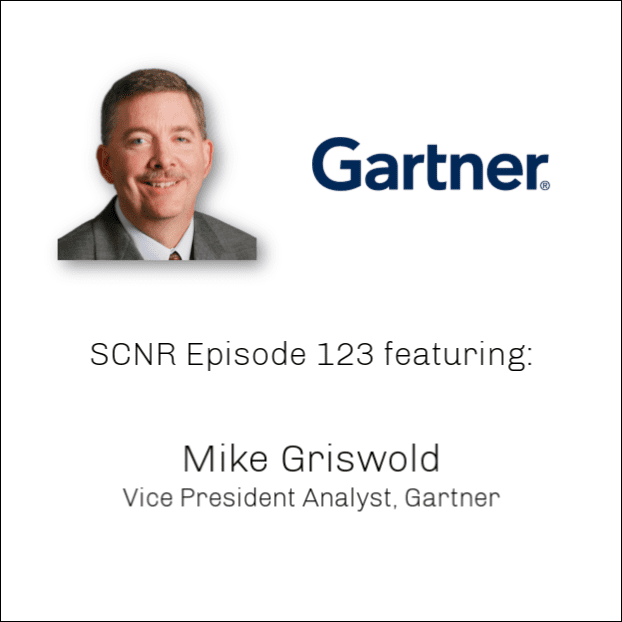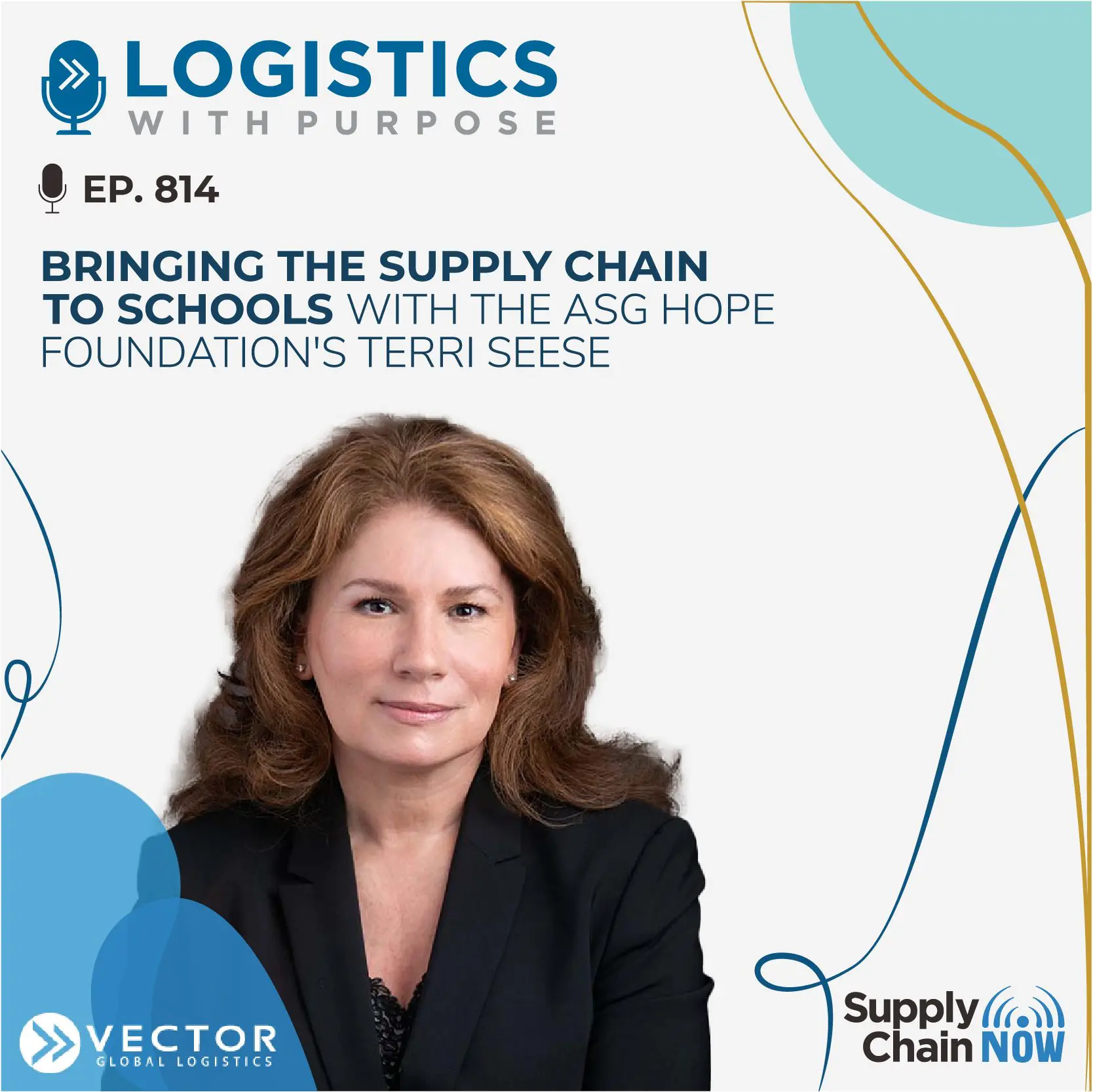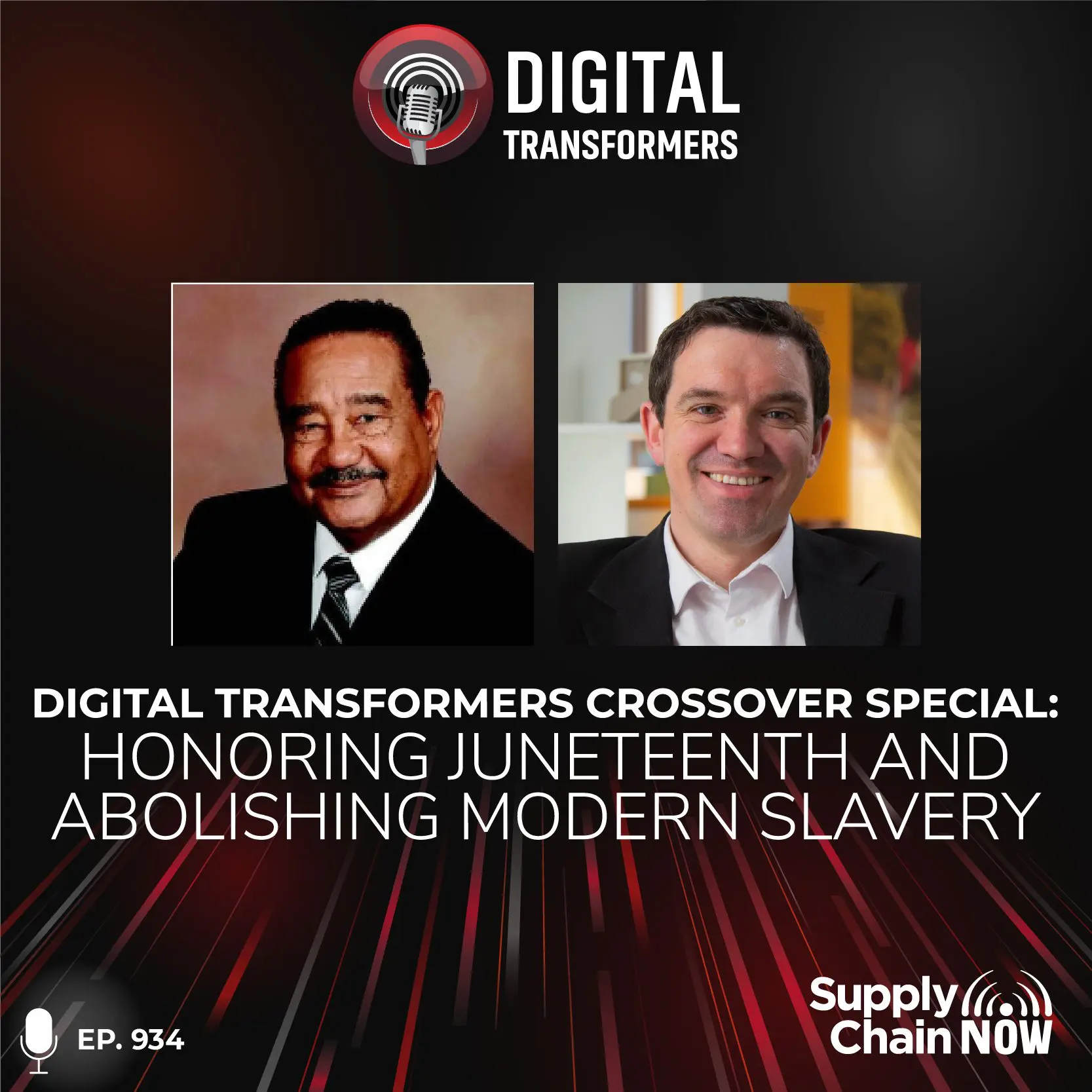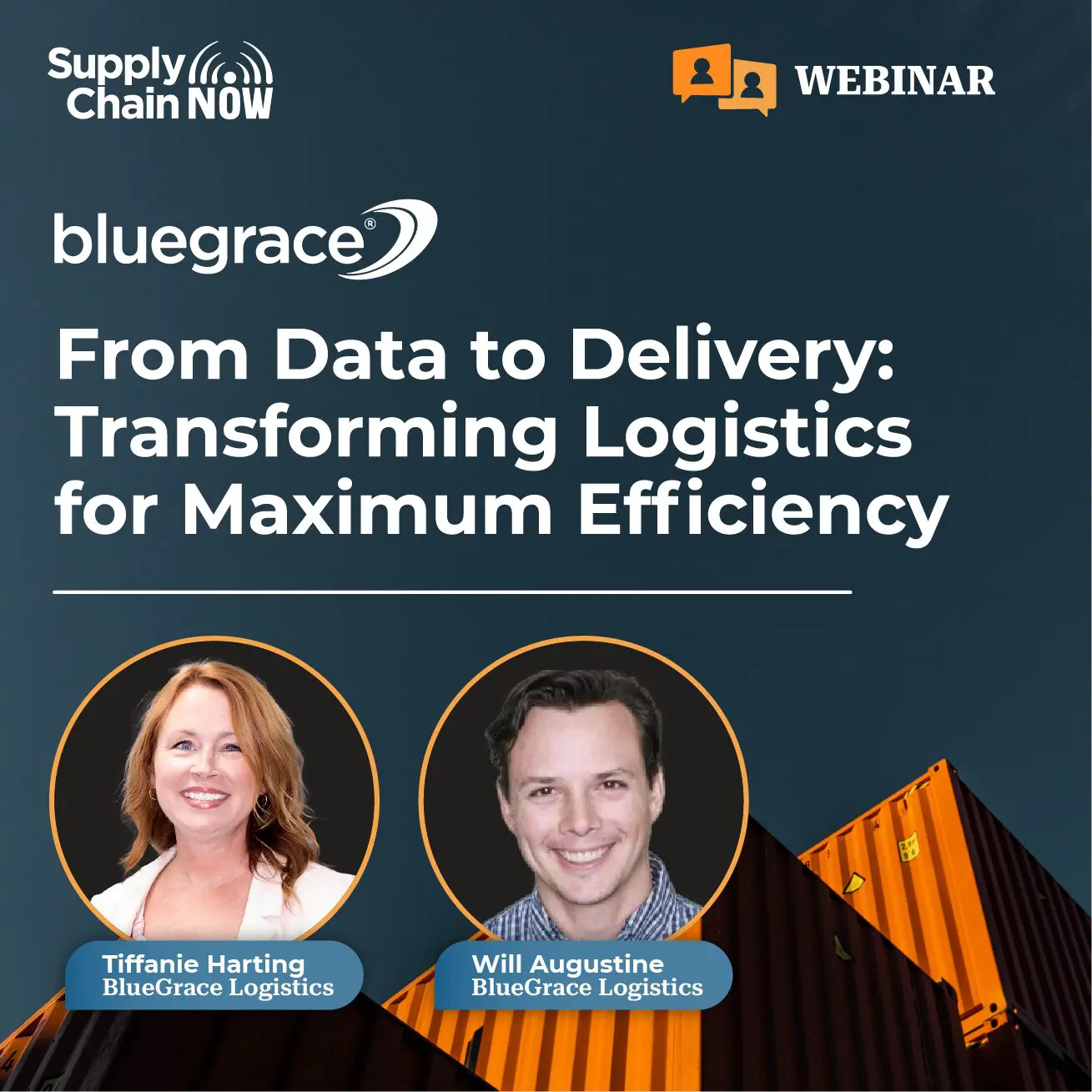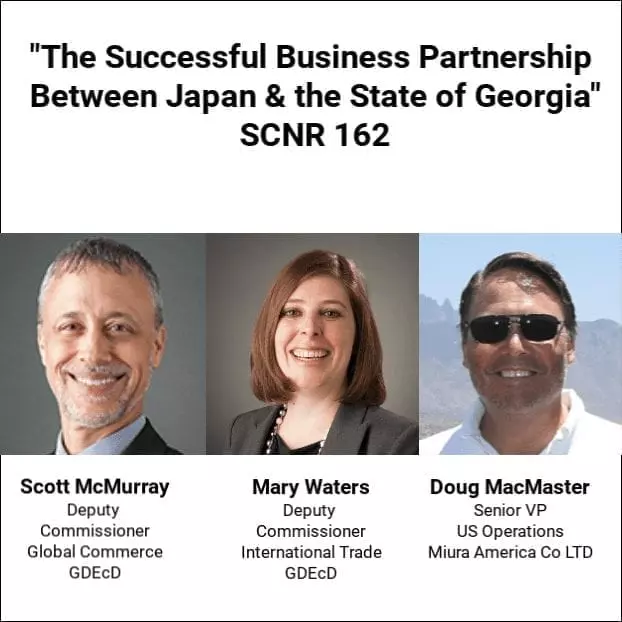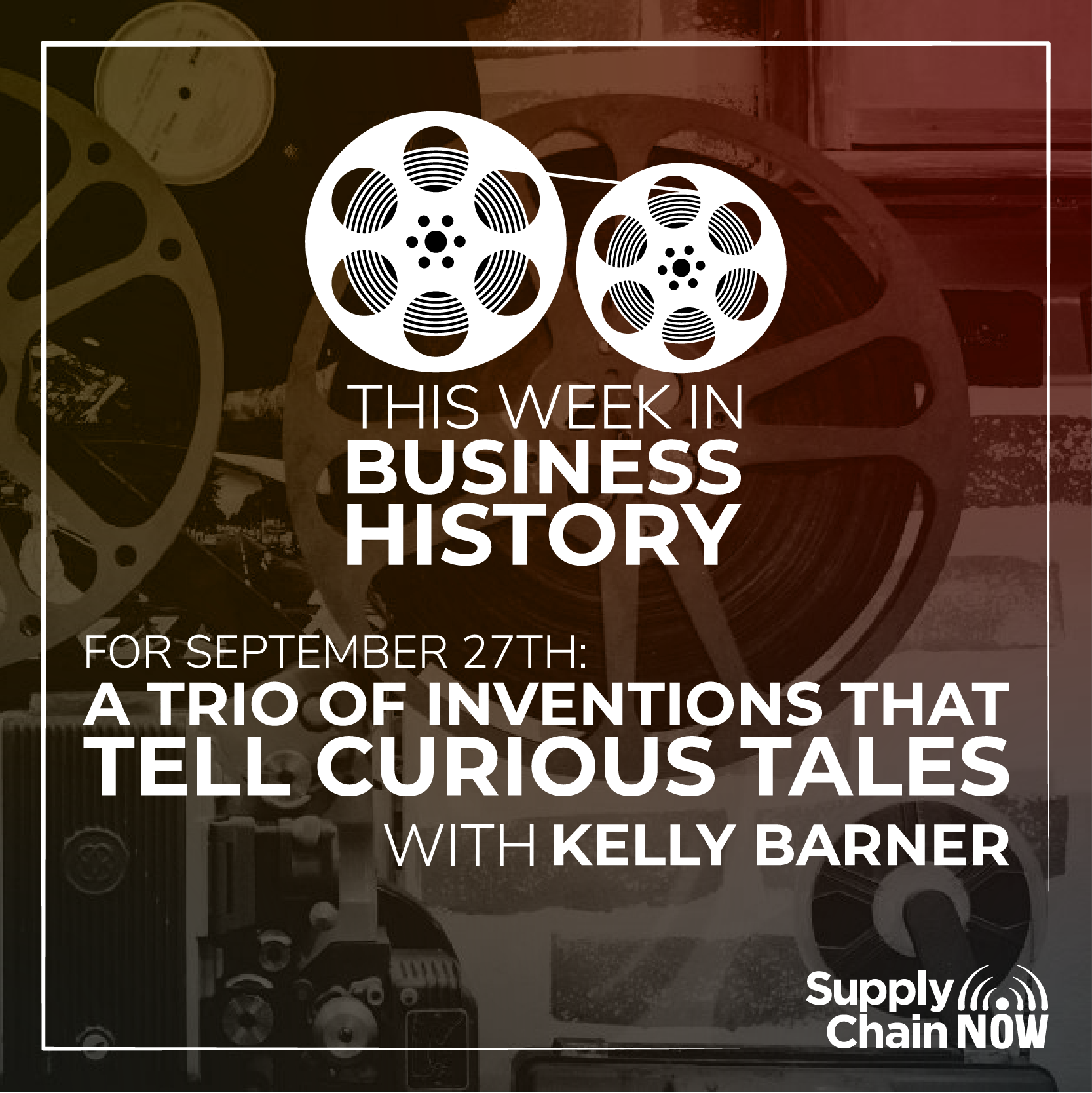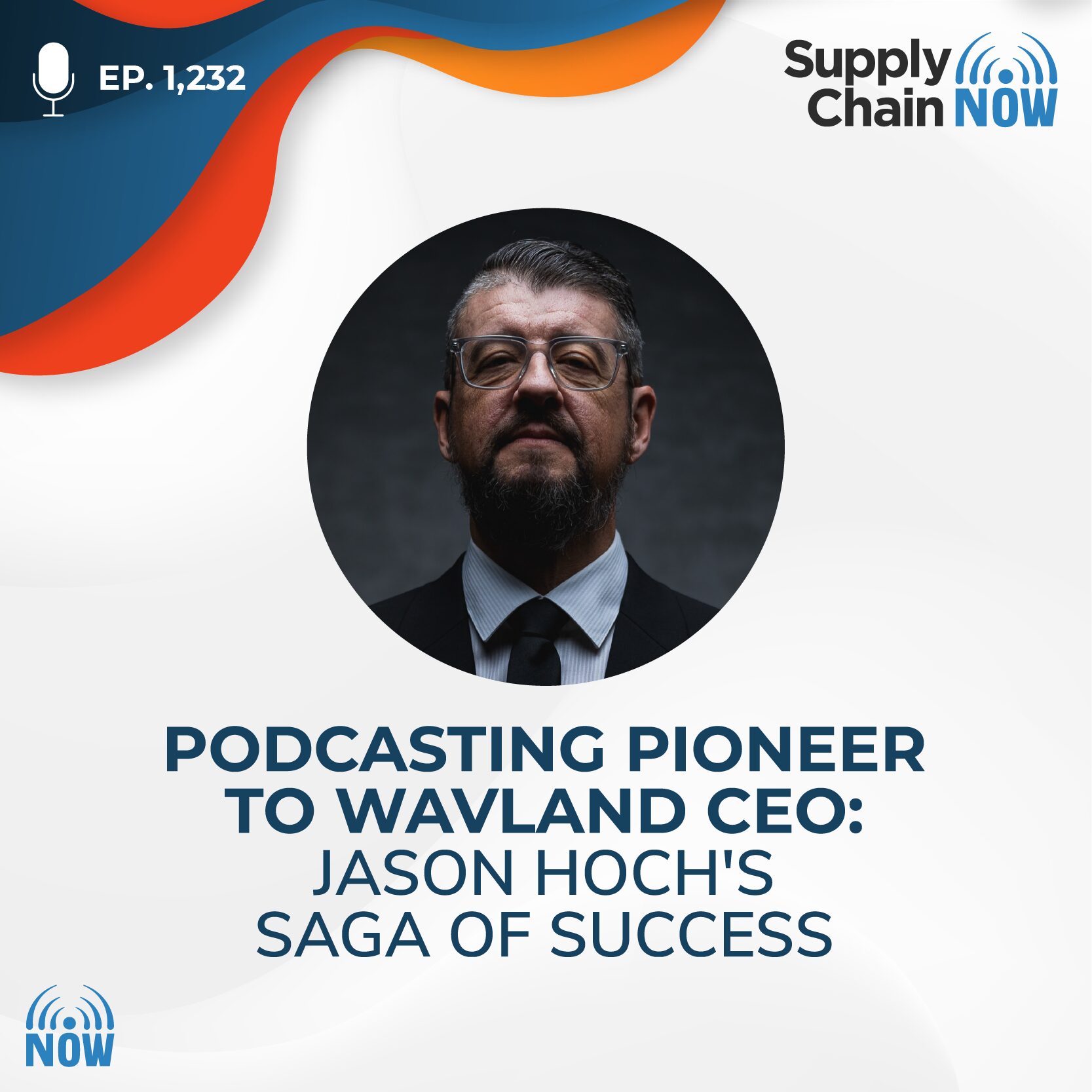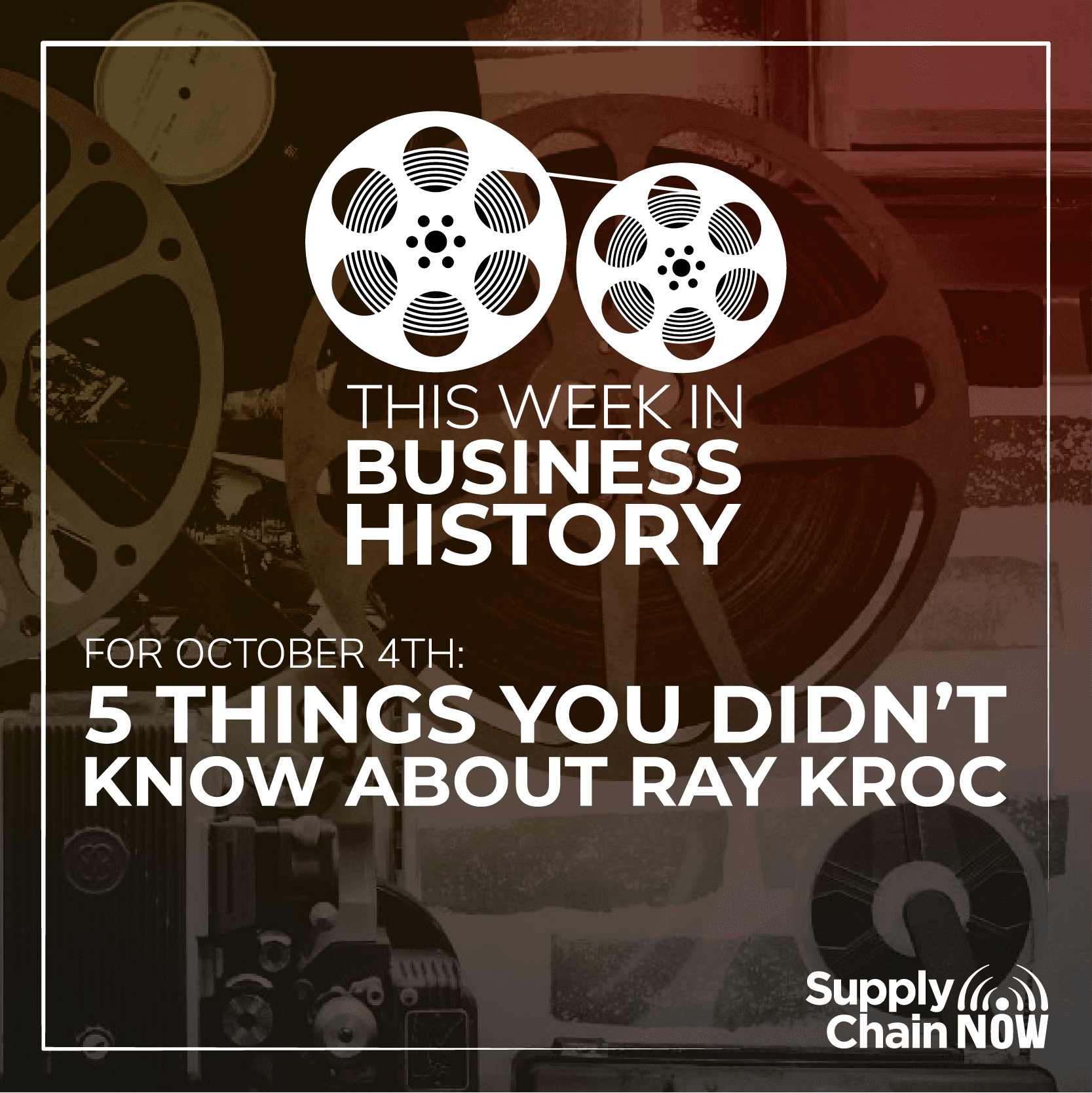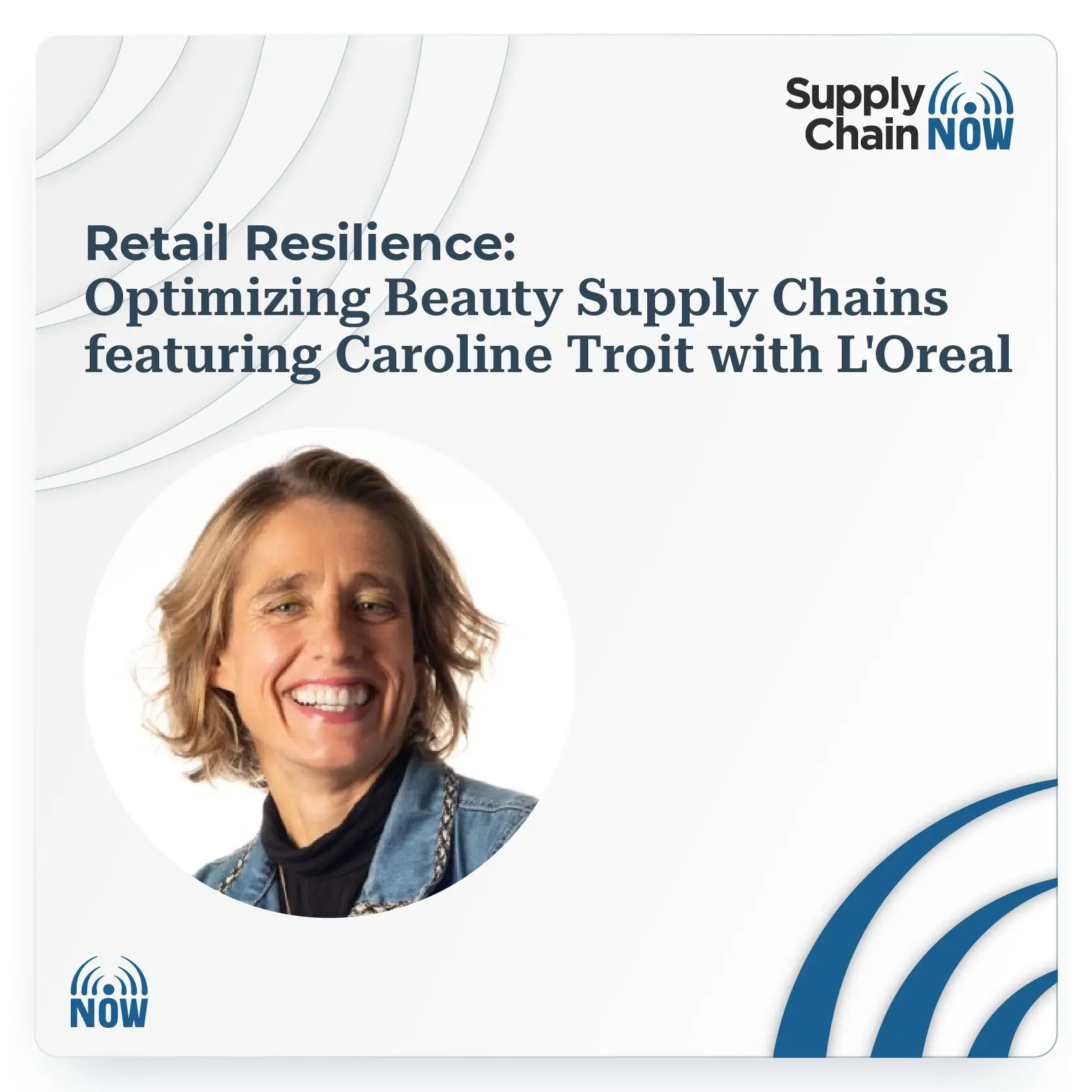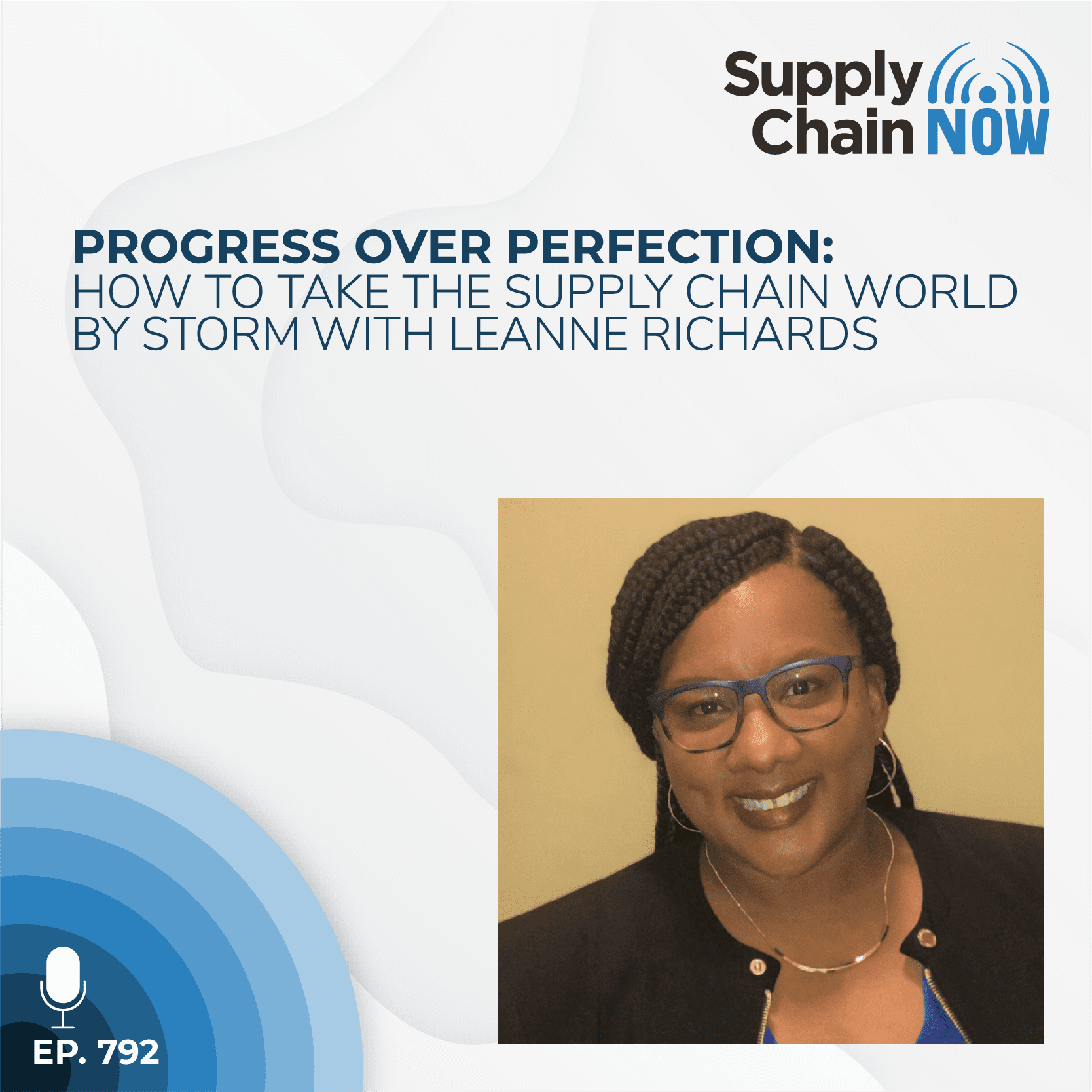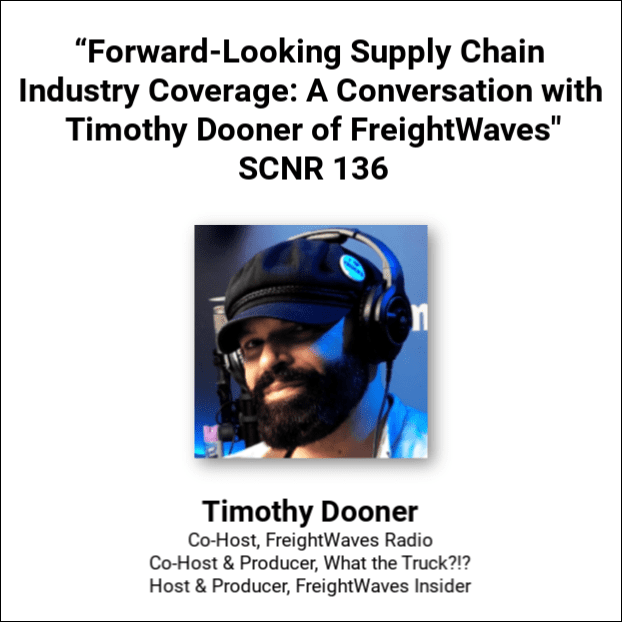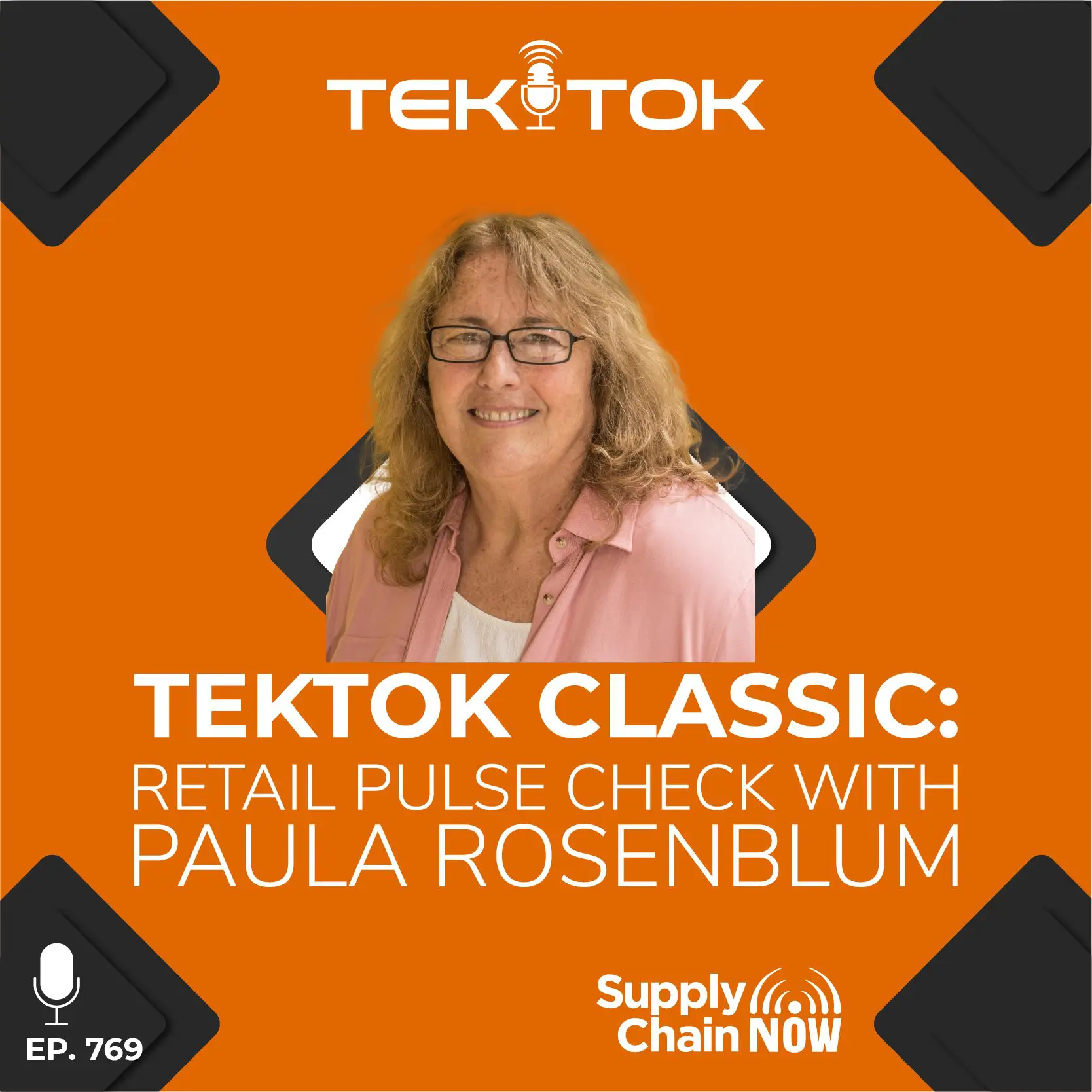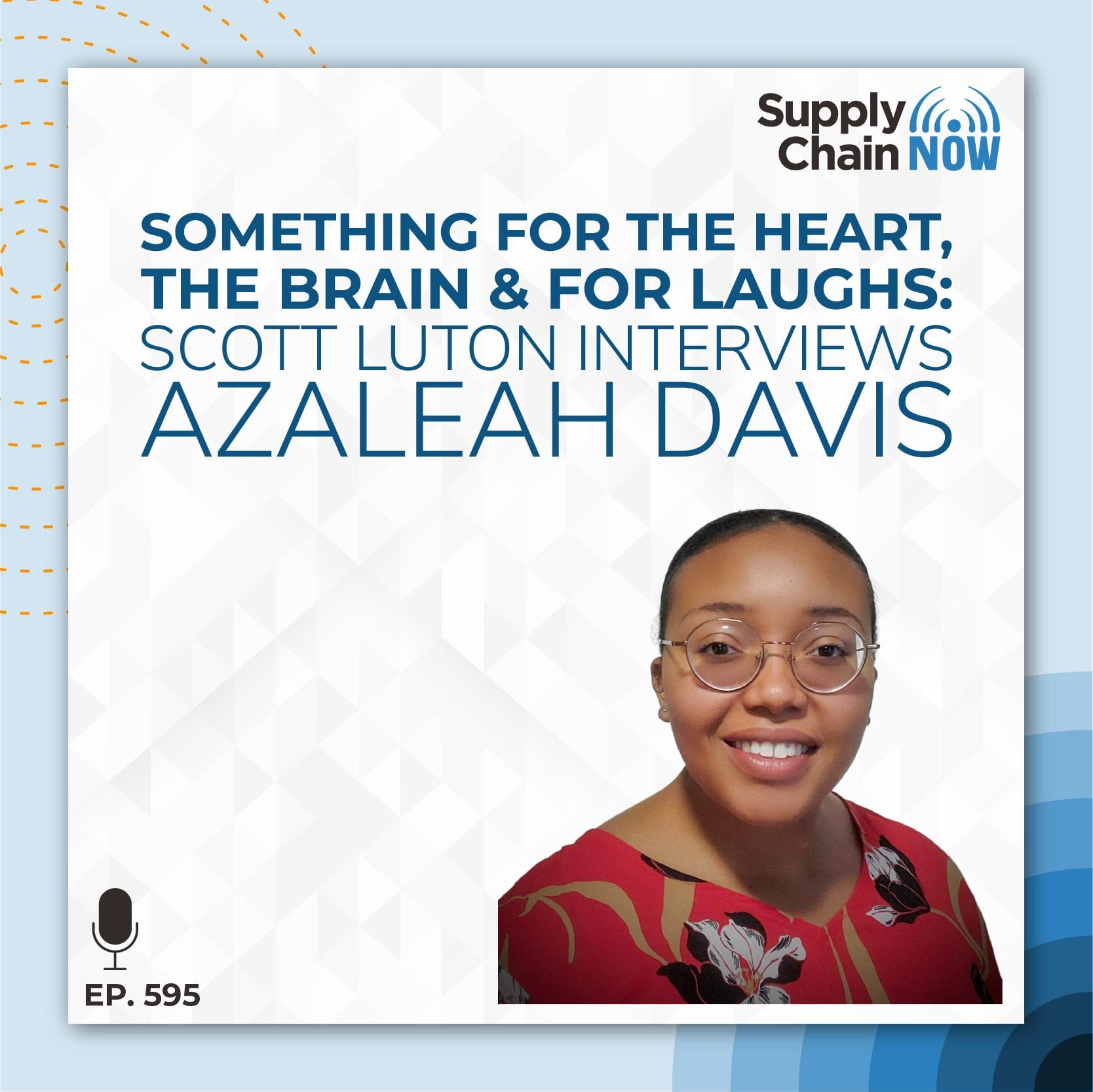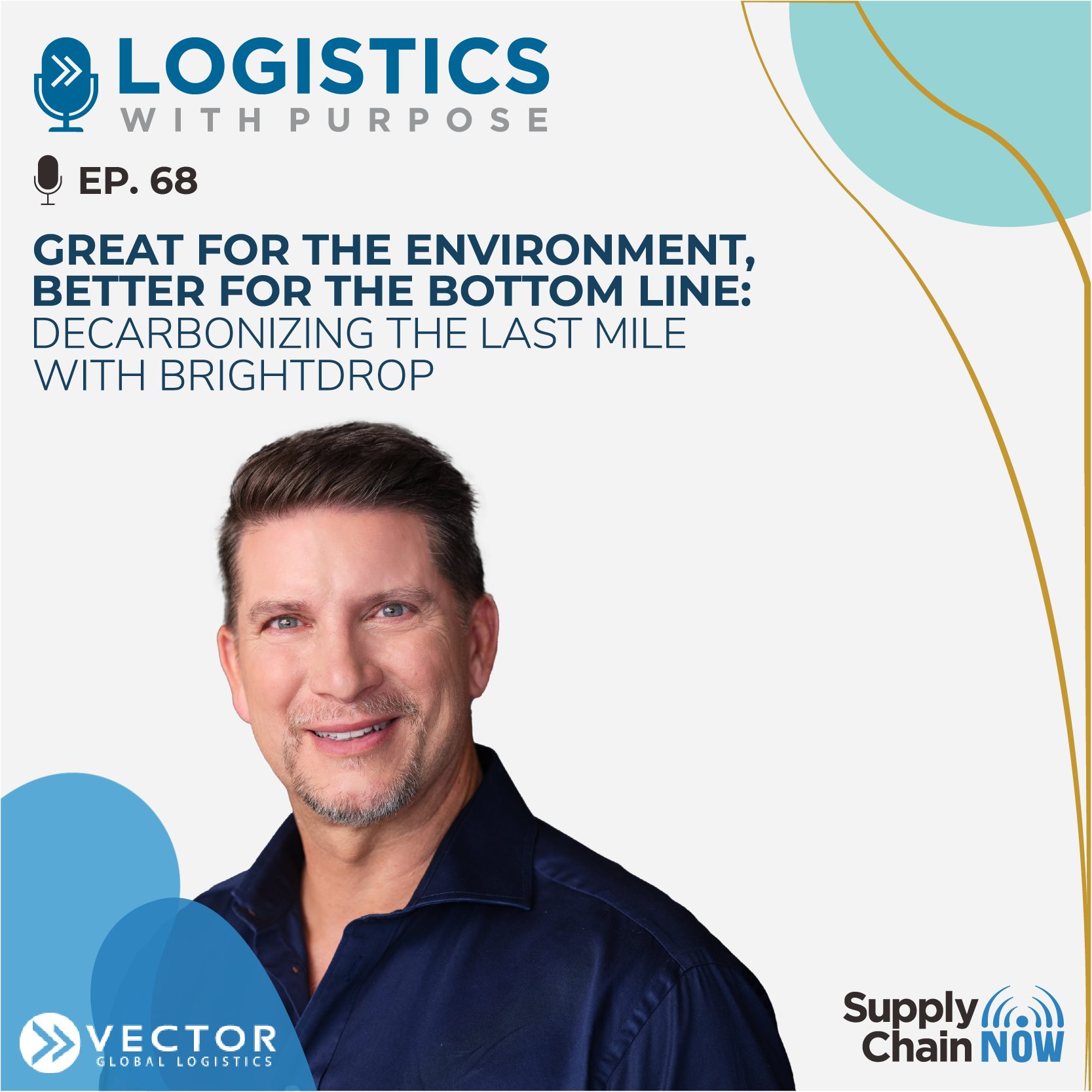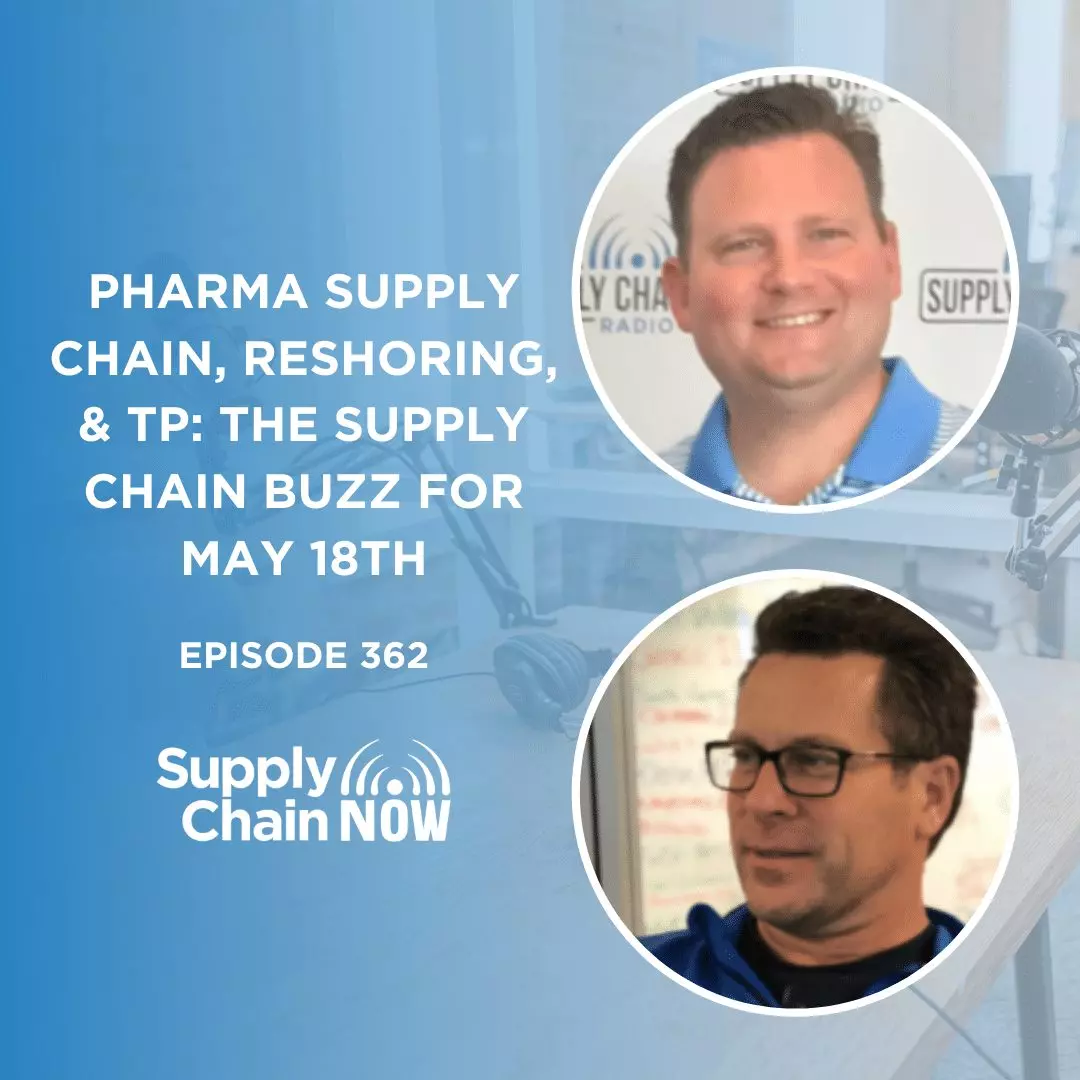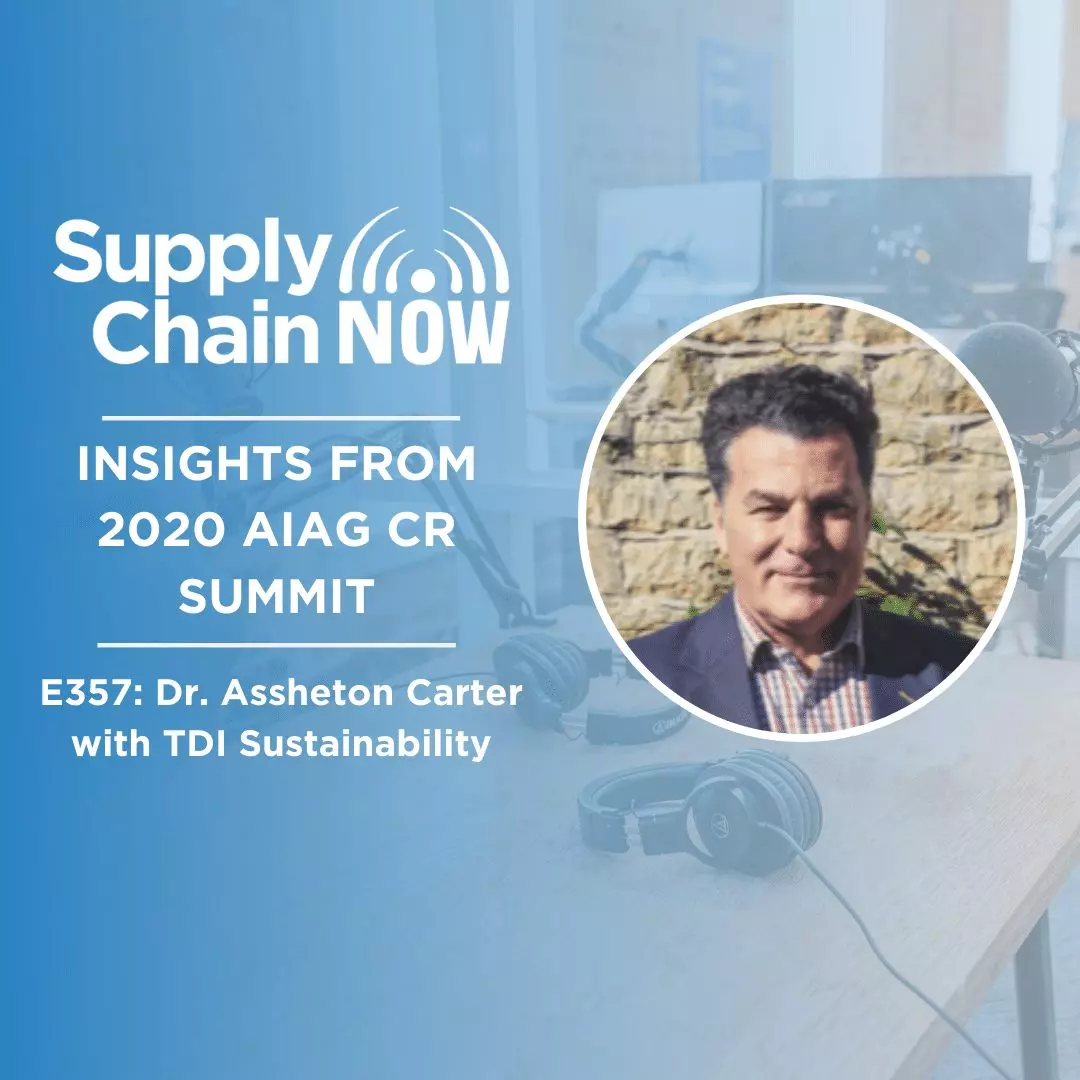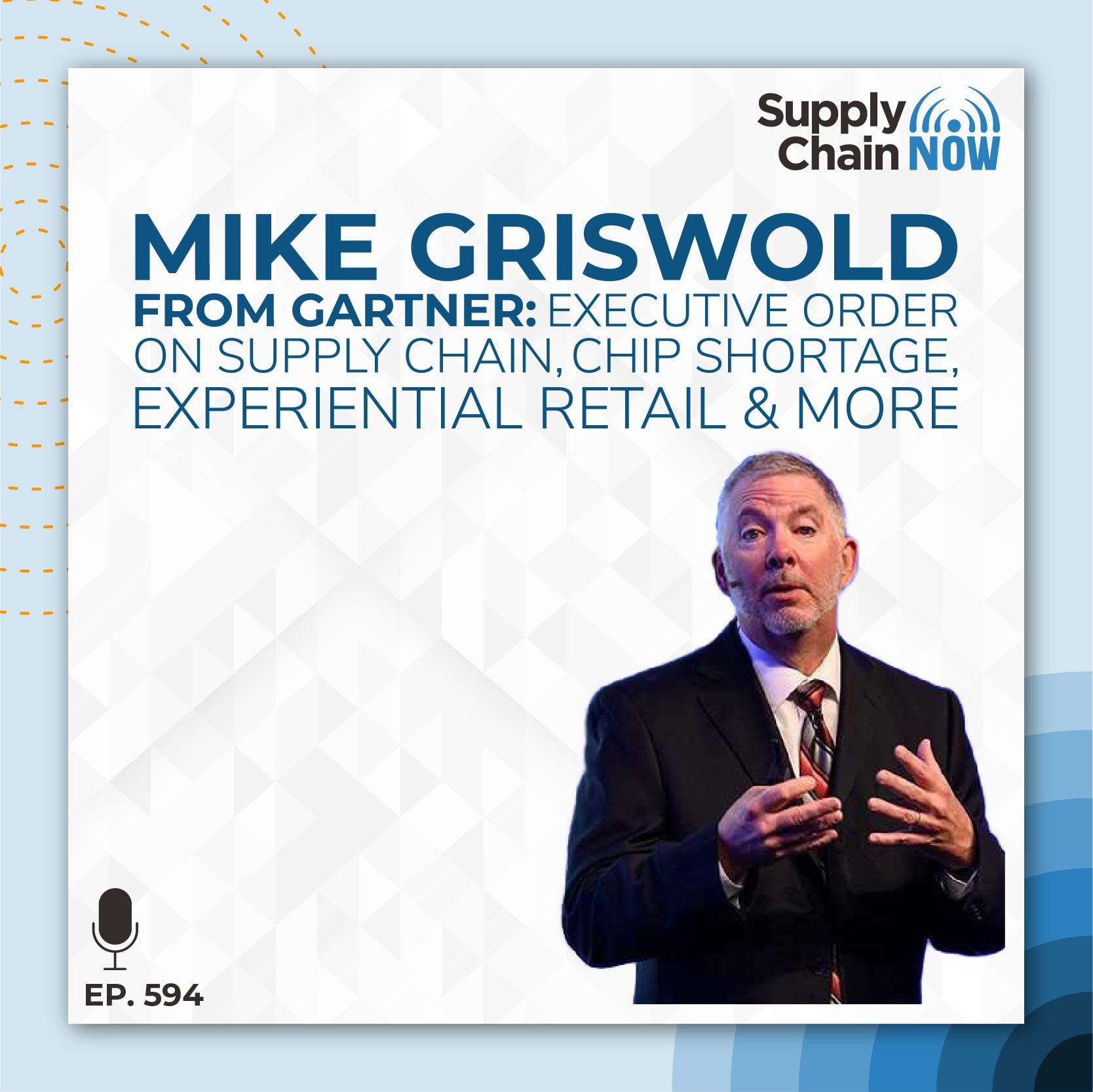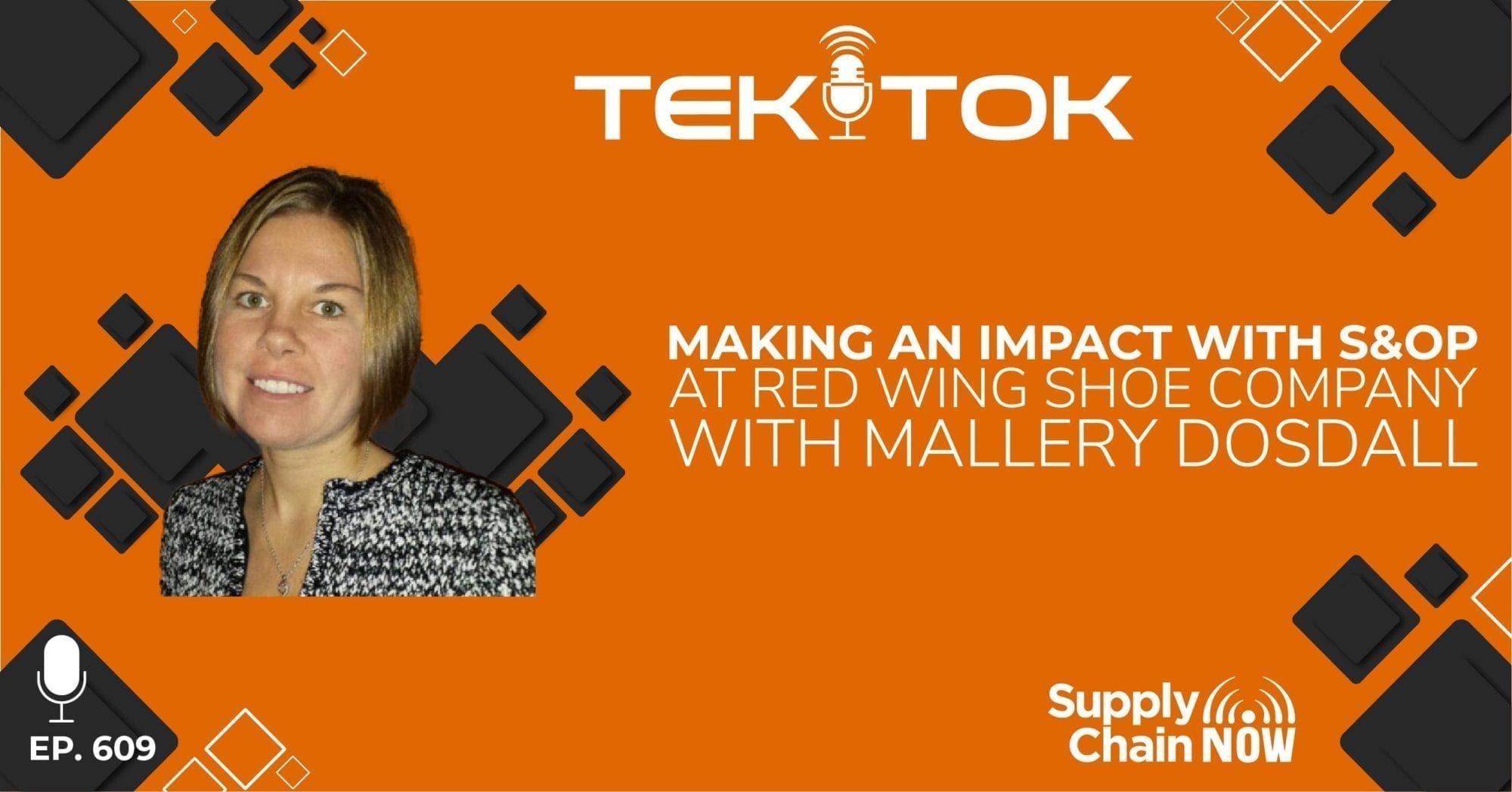
Episode Summary
In this episode of TEKTOK powered by Supply Chain Now, hosts Karin Bursa and Scott Luton welcome Mallery Dosdall with Red Wing Shoe Company to talk S&OP and its impact on the supply chain.
Episode Transcript
Intro (00:01):
Welcome to TekTok digital supply chain podcast, where we will help you eliminate the noise and focus on the information and inspiration that you need to transform your business impact supply chain success and enable you to replace risky inventory with valuable insights. Join your TekTok host Karin Bursa, the 2020 supply chain pro to know of the year with more than 25 years of supply chain and technology expertise in the scars to prove it Karin has the heart of a teacher and has helped nearly 1000 customers transform their businesses and tell their success stories. Join the conversation, share your insights and learn how to harness technology innovations to drive tangible business results. Buckle up it’s time for TekTok powered by supply chain now. Hey,
Scott Luton (01:14):
Good afternoon.
Karin Bursa (01:15):
Good afternoon. Good to see a Scott. So excited today for our livestream discussion here on tech talk, which of course is hosted on the one and only supply chain now. And I get the benefit of having Scott with me today. So Scott, thanks for joining in.
Scott Luton (01:33):
Hey, I like tagging along. I’ve got my note pad ready to go to learn from you and our wonderful guest. And I think our, all of our attendees and community members are really going to enjoy the conversation we’ve got teed up today. Very timely topic and an outstanding leader. That’s going to sharing her perspective.
Karin Bursa (01:49):
Yeah, absolutely. You know, the, the folks at Redmond shoe have one of the best sales and operations planning processes I’ve seen and they’ve continued to evolve it over time. So I think that that’s a real differentiator here. And as Mallery Dosdall, who’s our guest today is going to tell us a little bit about how they’ve built their process, how they’ve refined it over time and really the instrumental role that it plays in coordinating activities across their, their company today. You know, but I think, you know, some of our guests or some of our audience may not know red wing. Maybe we should talk a little bit about who red wing shoe is
Scott Luton (02:26):
Agreed. And, and, and by the way, going back to what you shared, you you’ve seen a lot of leadership teams and how they plan, how they execute on the best laid plans. So that compliment Korean is quite a, quite a big one.
Karin Bursa (02:41):
It is, but it’s well-deserved, the team has really earned it. They’ve, um, you know, they’ve evolved from a very foundational view of sales and operations planning. They moved from a really manual process into a fairly automated and interactive process, and they put different touchpoints into place to make sure that that executive team and the brand owner teams were really bought into the process. So I’ll let mal tell us more about that today as we, as we go on, but, but just a little bit about red wing shoe. So I think I might’ve shared with you Scott, this was one of the coolest plant visits I’ve ever done, right? The smell of leather is everywhere, right? And you know, their manufacturing team are really artisans. A lot of their product is still manufactured by hand and the skill and care that’s put into it is just amazing. Most people know the red wing shoe brand right around kind of those purpose built footwear. That’s used, whether, you know, you’re in manufacturing or construction or the oil and gas industry, um, you would find their products everywhere from, from the mid East, you know, in the oil fields right down to the Midwest in the middle of the cornfield. So, so good protective footwear, but actually become family heirlooms. A lot of people have them resold over and over and over again.
Scott Luton (04:07):
Right. Well, I’ll tell you, one thing folks may connect with red wing is roller skating. I grew up in Aiken, South Carolina visited the red ring roller way. Uh, every weekend it was a huge roller skating nerd. I played Pac-Man and a few others on the side. So that seem in my brain and I I’ve done there’s any affiliation between that. And, but that semen in my brain that red wing, uh, and put them on all my radar early, early in life. So for some folks, some folks may make that connection, uh, and we’ve got a slew of folks signing in. So we’re going to say hello to a few of them here momentarily. But, um, so what, uh, so we’re, you know, a ton of feedback on an earlier episode, Corinne cause this, even though you and Mallory, I think I’ve known each other for a while. Uh, really a lot of the feedback you got on one of your last episodes is what kinda help tee up today’s conversation.
Karin Bursa (05:02):
Yeah, absolutely. So there was a prior episode on tech talk that is around sales and operations planning and inventory optimization and what that, what that executive team needs to know and understand about those topics and how they’re related together. We got so much feedback on that topic that I thought this would be a great opportunity to just dive into how one company is using the process of sales and operations planning to drive better decisions and to keep their team all on the same page, as they sense and respond changes in market conditions. And as we know, there’ve been a variety of changes in market conditions. So what we’ll hear more about that, but if our listeners want to go back and listen to a prior episode of tech talk it’s episode number four, and it talks about sales and operations planning and inventory optimization.
Scott Luton (05:54):
Wonderful. And we’ll see if we can’t drop that link in the comments, make it easy for folks own that note. Can I say hello to a few folks, Corinne, please, please outstanding. Want to say hello to Peter. [inaudible] says tech talk live, and in-person great to be here. Let the learning begin love that Peter. And by the way, we published a great episode with Peter. Peter spent twenty-five years at air Canada, and we, we could just, you know, get the top of the iceberg in an hour or so with him. But, uh, he always brings it in his live streams and it was great that it really needed to share some of his perspective earlier today. Kayvon is with us back with us. He’s always alive and well on these live streams. Great to see a Cavon Paula joining from Kansas city. And I think we’ve got a weather update from here from her momentarily.
Scott Luton (06:37):
We’d love to know what’s the weather like. And other next to the parts of the world, Susan is with us via LinkedIn. Great to have you here, Susan. I think I saw Gary Smith, uh, sneak and Paula says whether it’s very windy, 70 degrees better than the cold and snow a couple of weeks ago. I think our guests can relate to that. Perhaps Peter says it’s five degrees Celsius. You get up my protractor and work out that what that means in Fahrenheit. So clay, of course, behind the scenes, we’ve got clay and Natalie and Amanda making it happen, really engaging. And if you, if you’re big into Twitter, check out, Natalie is going to be loud, tweeting force over on the supply chain. Now handle Gary is with us from New York on what the Willard’s like up there. Davan, we’ve got a great episode. We’ll be re releasing with Dave and who, who has done a lot of work in the manufacturing sector. He’s got some neat, neat POV to share there very soon. So Kerryn, are we ready?
Karin Bursa (07:33):
I want to talk about one thing before we bring Mallery in on the topic of sales and operations planning. I just want to take a moment to recognize the passing of a true pioneer. Many of you will know the name, Tom Wallace, Tom Wallace passed away on March 4th and he spent really 35 years of his career focused on sales and operations planning and business performance improvement. And he’s literally touched the lives and careers of tens of thousands of around the world. And he was instrumental in my own career and my own understanding and foundation of sales and operations planning. He’s authored a number of books and I just wanted to take a moment and just recognize his passing and extend my condolences to Tom’s family and friends. And just let them know that, you know, his hard work, his passion made a lasting impact on me and, uh, and so many others. So I just, just wanted to, um, share that with our community before we got started.
Scott Luton (08:36):
Well, thank you for that condolences prayers, best wishes to the Wallace family. It’s really a love hearing, the huge impact. I mean, from what I’ve gathered together, he said he was legendary and he touched the lives of so many folks. And, you know, so in these tougher times, it’s really neat to see that legacy come just shining through and, and hopefully in a very uplifting manner. So all the best to the Wallace family during these, these tough times. Okay. On a much, much lighter note. I want to say hello to just a few more folks before we bring in our guests here today as is with us and talk about our breath of fresh air. Y’all y’all gotta check out her interview. We did, she was dropping, I think I had three t-shirt isms from that conversation. So y’all check that out. She’s wonderful. Uh, sushi Sumida hello. Great to have you here via LinkedIn. Thanks so much for joining us. And we got lots of weather updates. The weather is a pie. It’s a popper.
Mallery Dosdall (09:29):
Always,
Scott Luton (09:30):
Always reminds me of that, of that little scene from Andy Griffith, where Floyd, the barber and Andy Grove sitting on a bench. And one of them says the other, we always talk about the weather, but no one does anything about it. And they were trying to figure out who to attribute that quote to well, we’ll see. Well, it’s someone that I’m sure I can find it, but nevertheless, thanks so much for joining us. Let’s welcome in Korean. You do the honors please.
Karin Bursa (09:51):
Okay, please. I it’s, it’s my pleasure to have the opportunity really, to introduce our community to Mallory docile, mal has been working on sales and operations planning for more than 10 years, and she’s got tremendous manufacturing and supply chain and demand forecasting experience. And I think you grab a love hearing what they’ve done, some of the challenges and some of the success that they’ve been able to drive for for red wing shoe company. So let’s bring her in, get ready for the swoosh.
Scott Luton (10:24):
All right, Mallery, how
Mallery Dosdall (10:26):
You doing? Good. How are you guys doing this morning or afternoon? I should say absolutely so good to have you here to the thanks. Thanks so much for joining us. And uh, Hey, ma tell our audience just a little bit about who you are, where you’re located, you know, and, and what you do day in and day out. Yeah, so I’m located, um, in Redwing Minnesota. So I can empathize with our friends in Kansas city. We had a nice little day yesterday of warm weather, but cold is back today for the rest of the week. So you get those little snippets, but I’ve been with red wing shoe company for about 15 years now, started off, you know, looking at our retail analytics and then moved over into demand planning. And over the course of the last 10 years became the global manager of our demand planning team, as well as the manager of our CYA.
Mallery Dosdall (11:23):
So I know we, we talked a lot about SNOP Redwing shoe company added in the eye, uh, for inventory. Um, because we did, we found, we were talking about it all the time and it is a huge portion of business. So, um, I’ll talk a little bit about why we changed the naming, but we do call it PSI up at Redmond shoe. Yep. And that’s a great point. I’m glad you brought that up actually Mallory. So whether, whether you call it sales and operations planning, which is probably the most common term used around the world or PSYOPs. So what, what Mallory was saying is S I O P sales inventory and operations planning, or some of you may refer to it as integrated business planning, all of these touch everything from market demand, through production and sourcing right out to customer delivery and performance. So that full process, um, uh, bringing the information and all the demand signals and supply signals together.
Mallery Dosdall (12:22):
So why did you guys insert I opera or excuse me, I, inside sales and operations planning, what was the motivator there? Yeah. And so, you know, before, um, we kind of reinvented the CYA process. We did have an SNOP process. It was a meeting of about 40 to 50 people in a room talking through numbers that were six weeks old. And we were in a new fiscal month and we were just rehashing the past and no decisions were really made if you will. And at that point we decided we needed to reinvent. So one of the ways to reinvent is to take a look at what was working, what wasn’t working, and we changed the name. So it had a new context and new connotation, new expectations, new deliverables. And we called it sigh out. Also we have SOP, which is standard operating procedure. And it was confused a little bit with that too. So by adding and changing that name, the expectations, the connotation, and the acceptance came with that. Yeah, that’s a great point. I mean, branding is so, so important in making these programs successful. So I think as you know, as people look at that and look at their organization, think about what’s necessary in order to get that buy-in across your business.
Scott Luton (13:49):
Yeah. I think that’s important. I think one of the things I heard Mallory say is how, what was in place prior, no decisions were getting made, you know, and that’s a big sign of trouble, right? When folks aren’t willing to make decisions based on a number of factors, including lack of really good information. Right. And lack of good data mountain, speak to that for a second. Cause it seems like, I think operational excellence can be fueled oftentimes by operational confidence. And when you have a really strong PSYOP or IBF initiative or element to your, how you execute that really it’s gotta make you a lot more confident to make even the tougher decisions.
Mallery Dosdall (14:26):
Yeah. And it all comes down to data. As you know, a lot of us know, so about 10 years ago, we did implement a new system and we implemented Logility to help us with our forecasting, or we were doing everything in spreadsheets and I’m not even joking when I say it was 500 pages you’d print off, you’d manually go through, highlight what you want to change, give it back to someone and hope that they caught what you highlighted so they could change it in your ear, in the ERP system. Um, we knew there had to be a better way. There had to be a way to, to automate, to use, you know, algorithms and logic to help us drive our forecast going forward. So by implementing Logility and having, you know, the data real time live able to make decisions able to provide output, that was kind of the catalyst of morphing us into the CYA process. And again, by being grounded in accurate data, not just numbers with potential risks and formulas, but being grounded in the data that is correct and accurate. We were able to bring that and get the buy-in from the executive team and start that signup process.
Scott Luton (15:43):
So can I, if I can write on that last note, you ended with Mallory getting that executive buy-in, you know, [inaudible] has a great question to that thought. So making SNOP and executive meeting often, I see that that can hinder getting the right inputs from people who work day in and day out and planning. So how was your team able to get that executive buy-in?
Mallery Dosdall (16:04):
It started actually from top down, we, we had the buy-in of our CEO and president. And you know, when you have that initial buy-in, the rest kind of falls into place. We did implement something a little bit different than most companies with our sign up process. You know, the standard would be you get the consensus on the forecast. We look at your capacity constraints on what supply chain and then demand and supply come together and resolve potentially any issues. And then you have the executive review where you do make those decisions early on in the, probably the nine, 10 years ago, we would get all the way to that executive forecasts or the executive PSYOP meetings. So I have four and we would be discussing the forecast. It was either too high or it was too low. Or how do you think you’re going to get there?
Mallery Dosdall (16:56):
And many times it was not approved. So we didn’t even get to the heart of what the decisions were that we needed to make. So taking a step back and looking at what could we do as an organization to utilize everyone’s time efficiently, we implemented a little mini if you will forecast review. Um, so it’s after, you know, the brands and the presidents of the brands approve that demand signal, that forecast. We added a meeting with our president and our CFO, some additional people on the executive team. And we talked just about the forecast. We make sure that we have buy-in and approval from the key players upfront before we hand that forecast over to supply chain. So that way, when they are analyzing and they are looking at capacity or impacts that may or may not allow us to deliver on that plan, they know it’s been approved. Hmm.
Karin Bursa (17:58):
Yeah. So a couple of things in there that I think are really important. The first thing I want to point out is, so Mallory talked about calling your process, something that’s going to be meaningful to your business. So PSYOP was meaningful to their business and conveyed a change in decision-making and the format that was going to be used. But secondly is to make sure that you’re meeting the needs of the executive team. So I really praise the team at Redwing for inserting this validation of market demand. Now, now Mallory for your businesses is really, really important because you’re so tightly vertically integrated. Tell us a little bit about that. Some of our audience may not appreciate the additional pressure and visibility that that offers.
Mallery Dosdall (18:44):
Yeah. So Redwing shoe company, you know, as Scott mentioned, we’re known for our shoes or boots, but we also tan our own leather. So we have a tannery that’s located about a mile from our Redwing Minnesota manufacturing facility. So we tan that leather. It goes to our manufacturing facility where we manufacture product. And then we also have about 160 company owned. So we own Redway shoe stores. So when you look at, from start to finish, it’s all the way from tanning leather to selling from brick and mortar, as well as e-commerce, you know, to our consumers. So the fact that we have a PSYOP process that incorporates our leather forecasting and incorporates the footwear, we have, uh, a plethora of accessories that help support, you know, those shoes creams, the insoles laces. And then as Karen mentioned, we are heavily in the oil and gas industry. So we have a personal protective line of work where that we also forecast and sell more specifically into the oil and gas.
Karin Bursa (19:59):
Just so as people think about sales and operations planning in general, they usually are thinking about inside their four walls and they may be key raw material or key channel predictions, but Marie and her team are really looking at the full process, the full for some, which would be a multi enterprise, um, CYA process. They’re able to bring that visibility together and really synchronize the activities so that they can serve customers well, right. A high service rate, but also do it with efficiency and cost effective practices in place, all along the supply chain.
Scott Luton (20:39):
If I can, can I share a few comments from our community here? We’ve got a couple of questions, but I’m sure some comments first, still lots about the weather. I love that weather and Gary is going bicycling. I know he’s a big bicyclist. Love that. So let’s start with a question here. You alluded to this, but just to clarify, it sounds like you, Simon asked, did you implement the new solution internally or use integrators? You clearly, you mentioned Logility any other resources you used externally that helped make this happen?
Mallery Dosdall (21:06):
No, it was pretty much all internal. The system and brain Logility into the company, uh, was kind of that tipping point. We needed something that would give us real live data. So we took an SNOP process that took about six weeks. So again, if you think about six weeks to run all the analysis, you’re in the next calendar month, by the time you’re talking about the previous. Um, so we were able to with a system take what took six weeks down to about two weeks and two days. So now you’re able to look at the data and make those decisions while it’s still matters. You still can impact it. Um, you can be tactical as well as strategic love that. Yeah. Hey Scott, I would add that the red wing shoe team also did a lot about process education. So many of them went through apex training and certification. They went through some sales and operations planning process, kind of foundational training as well, and then evolved that as their actual signup process evolved over time. So I really love that they took a comprehensive view of people, process technology data, as they started to tackle this, you know, this opportunity for the business.
Scott Luton (22:29):
Wonderful. It sounds very holistic and seems like they really, from the outset wanted to make sure it was sustainable based on what you just shared there, which is really important. Paula says accurate data includes consistent data, great point systems need to have fields with required entries. So the responses are consistent and then measurable great stuff there. Paula, let’s see here, Rhonda. So you mentioned Excel. She says, Oh my gosh. I remember creating my first Excel spreadsheet without any assistance learning how to do formulas for start-up operations at a student recreation center took three days and several amends over the years now with technology automation, it’s made operations so much more efficient and timely, great point there. Rhonda Dr. Ben Pinza Zimmerman. Nick is where this today. Great to have you here. Nick rumor Kayvon drops a bunch of hashtags data expert model of decision implement, evaluate and revise.
Scott Luton (23:26):
Revise is a crucial one, right? Once it’s not set it and forget it is set it and constantly make sure it it’s improving as a business continues to evolve. And then one more comment, see if I can track it down. I, it, you know, something hits and he try not to forget it. And, and, uh, unfortunately I think, well, I’m sure this from Nick, he needs to get better at it, invest in the right digitalization. And that’s a critical that, that, that prefacing word, the right, right. Not just picking the shiny object or, you know, it’s gotta be, uh, the, the, the right fit for the businesses. Is that right? Mallory?
Mallery Dosdall (24:02):
Yeah, completely. And if you, you take a look at, you know, that vertical integration that we talked about earlier, um, how we, we use Logility and how you create, um, that forecast is going to be very different. So if you think about a shoe, you have a size, a width and a style. You know, you look at leather, you don’t have any of that. It’s just a different part number. So how you forecast and how you, you execute the system has to be able to support all aspects of your business. So you don’t have to have specific technology for specific areas. So we were very fortunate, um, when partnering with Logility that we were able to look at those different pieces of our organization and create a solution for each within one platform.
Karin Bursa (24:54):
Yeah. And on that note, so some Mallory tell us a little bit about the sales and operations planning process who actually participates in it, who are the decision makers throughout that monthly
Mallery Dosdall (25:07):
Cycle? Yeah. So first I would start by saying each year we review who’s in each meeting because certainly we probably all have the sign. You know, I attended, uh, a meeting that could have been an email we’ll want that, you know, that’s not the goal, the goal isn’t just to sit there and report out information it’s to make decisions it’s to have the conversations it’s to have, you know, action items or takeaways as well as accountability for followups. So within that first PSYOP meeting, the consensus of the forecast and approval, uh, we have multiple different signup ones. So each brand, you know, we talked about red wing, but we also manufacture Irish setter. Uh, we manufacture the Vasco brand and then we have a heritage line. So we have presidents for each of those different areas. So they ultimately have to sign off, they have to approve the forecast and the plan that we’re putting together as demand planners.
Mallery Dosdall (26:08):
It’s our job to tell that story, you know, I like to say we’re very numbers driven data-driven, but we also have to be really good. Storytellers is you have to get the buy-in and be able to explain at multiple levels of the organization what’s happening. Why are we presenting the number we’re presenting? So in that meeting, you’re going to have your finance business partner, uh, your demand planner, uh, the president or sales, some sort, and then Redwing is unique. But I think many companies are kind of going this way. We’re demand planning, and SNOP up is not in supply chain and it’s not in sales. We’re in what I like to call an unbiased business services, departments of Redmond shoe company. So that department is really, you know, the department that, that isn’t selling and they’re not. So we’re unique in that way that we come at it from a what’s best for the consumer, what’s best for our customer without any preconceived notions. So within that sign up one meeting, if you get, which we typically do a consensus of that forecast, we then go to that intermediate CYA. I call it one a where we get the president and the CFO, you know, their approval of the forecast as well, and our VP of business services. And, um, our product creation team is involved in that. As there again, unbiased viewpoint is needed and required.
Karin Bursa (27:43):
I interrupt you right there. So that for our listeners, that is a unique step in the Redwing process, but a very important step because that’s getting the buy-in from that executive team early, what the future view of market opportunity looks like. And then what we’re doing from there on is starting to actually constrain that plan based about around what can be produced or sourced or moved to market. So tell us about that now.
Mallery Dosdall (28:09):
Yeah. So once we get the approval supply chain is going to go through a laundry list of things again, because we’re so vertically integrated, we’re going to look at what is our ability to tan leather? Do we have enough hides or sides coming in to support the demand plan constraints on logistics? I think we all can empathize with each other right now, uh, any being anything in to a port and the complexities and the challenges with rail containers, getting space on a vessel, you know, we’re looking at those constraints and the lead time impacts of that, you know, to manufacturing, as Curran said, do we have enough people? Do we have enough raw material? Do we have too much? So really looking at all of those different pieces and putting together a comprehensive up to deck, if you will, um, which includes KPIs as well as those conversations of where we do have risk to deliver the plan. And it’s not just talking about, you know, here’s the risk it’s coming up with recommendations and solutions. So you can have a risk, for example, using the ports right now where we know what’s taking longer. We know there are slowdowns, especially the West coast now starting to impact the East coast. So what are our options? Do you bring it in by air? Do you pay spot rates, you know, and listing those out. So that way, when we do have those conversations at the executive, we have recommendations.
Karin Bursa (29:42):
We have a recommendation from our logistics team as to here’s what we would recommend. And here’s why, and sometimes it might be, we’re just going to keep doing what we’re doing because there isn’t a better solution.
Scott Luton (29:57):
Uh, and there’s not a business case for that change. There’s not, you know, you’re still maybe looking for the right signal, the right elements to come into play, to make a different decision or chart a different path. I mean, that’s really important too. I think, uh, Corrine, you know, w when what’s, when it’s working, I can think of some examples where folks may over over pull levers and over not tinker with things. Have you seen that before Chris?
Karin Bursa (30:19):
Oh, absolutely. I mean, in supply chain, it’s just as bad to have, you know, too much as it is to have too little in most situations. So it is important, um, to, to try to remove that bias, which is one of the things I like about, um, Mallory’s team being in this business services group. They, they are viewed as kind of an unbiased resource to the organization as a whole across brands. And now you mentioned a couple of the other brands, right? So those brands have different demands, signals and different fashion quotient, if you will, to their portfolios as well. So it’s not, they’re not applying the same business rules across the whole portfolio of product that’s offered.
Scott Luton (31:07):
So Corrine w we had the best laid out plan to navigate all this great conversation and these experiences and insights from, from Mallory. I apologize. I might be bouncing around just a little bit, but if I can, and we can always go back, we can do whatever we want to do here, Korean and Mallory, and to our community members. She mentioned the port there’s, as we all know, right there, there’s a, there’s a ton of challenges on the West coast in particular, but as Mallory mentioned is catching up on East coast, I think. Uh, so I want to point to this great article. I think it was published yesterday, Dan Ronan with transport topics and a lot of stuff in here, but, but picking out a couple of things. So he was of course, talking about port congestion and Peloton Peloton is going to be a supply chain case study for years to come.
Scott Luton (31:53):
So of course it’s exploded. He mentioned that Peloton more than doubled its subscriptions from 2019 to 2020, right? So ton of demand, Hey, let’s get those bikes cranked out and you name it, meet that demand. However, most of the Peloton equipment is made in Taiwan right up until here very recently. In fact, then of course, you, you bring stuff in from Taiwan. It’s gonna be directly impacted with what’s going on in West coast so much. So that, that was a big factor in Peloton decision to purchase a gym equipment manufacturer in North Carolina pre-core, uh, which I think they announced a month or two months ago, port of LA executive director, Jean Sirocco was quoting this article saying that if they stop today, accepting ships, something is 46 ships waiting just to enter. I can’t remember geographic name for it, but ton of, of waiting, if they stopped bringing in cargo today, they still have a month of work ahead of them to clear what’s already at the port, their import. And unfortunately many analysts Corrine clearly don’t see a breakthrough anytime soon.
Karin Bursa (32:55):
Yeah, absolutely. Mal we were talking about this just the other day. Again, give us your perspective on some of the constraints and challenges, the container availability and how you’re serving customers. How has your, how has your PSYOP process helped you with yet another market challenge of something that’s out of your control?
Mallery Dosdall (33:15):
Yeah, so I think the big thing is communication and transparency. You know, we were all facing the same challenges, the same complexities, and making sure that everyone is aware of what’s happening and the impact to that is key. And that’s from the executive team down to customer experience. Who’s taking those phone calls from customers, wondering where’s my boot, where’s, you know, my product. I ordered it, you know, two weeks ago and it still isn’t here and helping and having the tools in place. So that way they can see anticipated arrival and communicating. Once we do know where container, you know, X, Y, Z is within that process. So that way we can not only let our customer know, but prioritize when they’re coming in to our distribution centers, what has the highest level of need for customers today? So it’s not first in necessarily first out it’s, you’re getting a bunch of stuff in, but let’s prioritize how we unload those to make the best return for our consumers or the biggest impact. But again, the transparency piece is key. So everyone is hearing the same thing, reading the same thing. And we’re all I don’t want to say on the same ship together, no pun intended, but we are, we’re all on that same shift, same direction.
Karin Bursa (34:45):
I get it, I get it. So I think, you know, that proactive nature and that proactive communication also with the customers it’s really big. Um, but also keeping your team, the executive team there, um, across the brands all on the same page as well. And to the point that you made very early in our discussion today, focused on making decisions by not just being a recipient of reported information, but, um, your ability to provide options and then implement the decisions that get made.
Scott Luton (35:16):
So let’s want, I’ll share a couple of, we’ve got some great comments here from our community members. Rhonda, you made a point earlier supporting the data with actionable understands analysis is super important, great perspective. There from Rhonda, as Aaliyah says, communication models will have to become more like channels, not stairways. As she says, as a of data grows to one individual it’s valueless, but a team can make it valuable to an entire organization. Excellent. Simon’s got a future. I’m oppose Simon’s future looking question to you maybe at, towards the end, let’s see here about the ports. David says congestion is only going to get worse, not better. And especially with so many companies extending the inventory stocks, they they’re keeping on hand as a result of this, most places are looking to start being less lean in favor of having material. Good point, uh, automotive companies are, are notoriously considering that, right this very hour. All right. So Kerryn, where are we going to go next with our guests Mallory Dostel with red wing shoe company?
Karin Bursa (36:18):
Well, I had to pick up on something, as Leah said, let’s, let’s talk about measuring value. So, so Mallory is you look at the process that, um, is used across Redwing shoe. When you look at the investment and time and personnel around PSYOP, give us some examples of the value, why this has got great legs under it, why it’s continued to evolve over time.
Mallery Dosdall (36:42):
Yeah. So, you know, as I mentioned earlier on, we took a six week process, brought it down to two, so we’re able to be actionable now, um, versus rear view mirror, implementing a system versus spreadsheets allows us to have measurable KPIs, you know, before, uh, I’ll never forget our VP of supply chain printed out all 500 pages and on a plane ride over seas, he highlighted red, yellow, green from a forecast error, and then counted up how many greens, yellows and reds there were. Now. I love, love him dearly. I did have to tell him there’s a conditional format that would have done that for him the same on time, but that just goes to show you how manual everything was. So we were able to, again, with implementation of a software, create KPIs. So we’re measuring our way to make, and we were able to improve that by about 40%.
Mallery Dosdall (37:42):
We’re now looking at our safety stock, not just as X amount of days of forecast, but it’s based on service level, not everything is equal. You know, we want to make sure we have the right product for the consumer at the right time in the right location. So really looking at what is our core product and having that on hand versus those, you know, the 80 20 that 20% that you maybe don’t need safety stock on, you know, a consumer is going to be okay, waiting a week or two weeks for that. So re-evaluating our safety stock position also allowed us to decrease our inventory, increase our turns while maintaining our service to our customer, which is key. You have to make sure that when you’re creating those KPIs and you’re, you’re looking at the performance of the company, it just be one or the other, they all have in combination. Otherwise you could end up impacting either your inventory position or your service to your customers, um, as you know, the extreme.
Karin Bursa (38:49):
Yeah, those are great examples. So I mean, you deal with the business, right? You’ve reduced the risk. And some of that risk is, you know, is introduced in, in managing the business on spreadsheets. So I think we have to, you know, do a shout out for that as well, but also understanding these trade-offs between the forecast accuracy, the inventory policies and the supply priority, um, around that is really important in the mix as well. And having prioritization on supply and where that’s going to get deployed as a part of the mix. But now when you’re doing this, when you’re having these conversations, how do you make sure that the general manager of a brand is getting the information they need? How does, how do you make them feel like this is worth the time and effort to contribute to that sign out process? What, what are the takeaways?
Mallery Dosdall (39:46):
Yeah, so I think a big piece, again goes back to executive level engagement. So it’s not a question of if you attend the meeting, it’s, you will attend the meeting or you’ll send someone as a representative in your place. There are times that, you know, if people are traveling, we’ll reschedule, you know, a meeting if need be, if there’s enough advanced notice, but you have to attend, it is your responsibility part of your job, no different than the demand planner needs to present the information and be ready to understand and tell that story. The president of the brand needs to be there to listen and bring insights. So what’s going on with the sales organization? Um, are we making sure we’re incorporating the marketing initiatives that are happening? Is there something, you know, some promotion or sale that we’re going to be offering? Did we land a new customer? All of those pieces, we make sure that we have alignment on some of the ambulance coming out or around the inventory piece. So if you think about the president, I can’t sell inventory demand planning can supply chain cans, sales can. So we do talk about what’s discontinued, what do we have excess of? How are we going to move through that? Um, and what different distribution channels do we have as an option?
Scott Luton (41:07):
Hmm. You mentioned a variety of factors that could impact demand there. John D riser is who submitted this question? Do you expect a boost? I think it’s a neat question with the calming $1,400 stimulus. Do you see any boosts there you think for sure.
Mallery Dosdall (41:21):
Yeah. So are a great example of this is with our Irish setter brand. So if you think about the outdoor industry right now, we’re all, well, I’ll speak myself. We’re, we’re still kind of quarantined. And a lot of people are getting outside and enjoying, you know, what mother nature has to go. So hiking and I know someone was going to go biking this afternoon. I’m a little jealous, it’s raining. But if you look at that and you look at, you know, the boating industry, you can’t get a boat right now. So those hiking boots and those outdoor hunting boots, um, or trail boots, those we see, you know, and potential increase in that. And as construction starts coming back, and some of those, you know, stay at home orders are lifted. We do expect to see an increase with consumption or demand. Is it a direct correlation to that $1,400? Probably some with the hunting and the outdoor, but then again, that stay at home is going to be an additional piece that we’ll see an increase on.
Scott Luton (42:28):
Um, can I ask one more question, Corona, we’re kind of approaching our time. Uh, Simon asks a great question as we are approaching, um, kind of some of the final things that Mallory would share with our audience, but I find this question from Simon, so I get it right. So he says, that sounds like a very mature model you’ve got working at Redwing. I agree. I, and Kerryn, thanks so much for bringing one of the shining examples of how you do it right. Across industry, because there’s plenty of other examples, but as Simon asked, what’s the next refinement. So what, what is next a Mallory?
Mallery Dosdall (43:00):
Yeah. So we’ve, I’m going to say, you know, we’ve successfully done footwear. We have a very robust process for our footwear. It is the biggest portion of our business. Last year we implemented, I called them mini PSYOPs with our SB foot leather manufacturing facility and our accessories. So the goal and the next steps are to incorporate all of that. So we have one holistic look of our total company incorporating potentially retail in the future as well. So what are the opportunities to look at forecasting front door, um, forecasting at a better level, that e-commerce piece. So that would be the next steps. So that way we have one deck that independent of who you are in the organization, you’ll be able to read it and it’s either going to be for work wear or accessories, leather footwear. And that would be the next steps. Yeah.
Mallery Dosdall (44:01):
So, so Marla, you guys have been at this now for a good 10 years. So what do you wish you would’ve known 10 years ago that, you know, now, like what if you could, if you could tell yourself 10 years ago, do this instead, or, or be sure to spend more time here, what would it be? Wow, that’s a great question. I think, you know, hindsight always being 2020, I would have, we would have incorporated those other aspects of our business earlier on, you know, when you come up with a good process and then you try to add something, um, after the fact it becomes it’s a little bit more difficult, so that would be one piece. And then I think the other is just making sure with turnover, um, as we all experience that we have the communication with the new people coming in, Slane, here’s our process and learn from them. They could be brand some great ideas that worked at their previous place of employment and always constantly trying to evolve. You know, we sometimes get stuck in the day-to-day the monotony of month over month, over month. Um, but always be looking for ways to improve attending different conferences and maybe participating more in these types of conversations would be something I would’ve told myself 10 years ago. Great. That’s a great recommendation.
Scott Luton (45:27):
And I, and I, and ton of great questions. I know, I wish we could get to all of them. So Neyha asked this one quick question. Have you seen shared metrics across teams help with
Mallery Dosdall (45:38):
Yeah, so our KPI’s low all the way through each of our PSYOP meetings. So the KPIs we have at demand consensus, I think excess inventory discontinued inventory. We’re talking about that at our sci-op to meeting with supply chain because discontinued inventory, excess cemetery, it takes up space and aware of, and it doesn’t get better with age. It’s not like fine wine. So we want to talk through that all the way to our executive meeting, because we do have KPIs tied to our inventory cash flow, excess discontinued as is a huge piece of that. So the shared KPIs and the transparency between business areas is key. And the more you talk about it, the more likely you are to get action.
Scott Luton (46:32):
Well said, you know, Corrine, we jumped right into this conversation and we didn’t even get to know Matt. You have to go back a ways, but we didn’t, we haven’t referenced Emma or Riley or what Mary does when she’s not leading supply chains and planning everything else. So Mallory, if you don’t mind, before we let you go, can we, can we, uh, can we check in on a human level with you? What, what, when you’re not doing all of this, uh, these incredible things, where do you spend your downtime?
Mallery Dosdall (47:01):
So Kerryn knows this. Um, I love working out, uh, that would be my number one thing. I, you know, love to run. I love to bike. It’s been a little bit more difficult now with being quarantined, if you will stay at home and working from home remotely. So I’ve been taking up gardening three months of the year up in the North, but we had a great successful vegetable garden this past summer. And I learned how to can, so eating lots of spaghetti and pizza sauce, and then just spending time with my dogs. I am on Riley and my husband, who is a huge fishermen. So getting out on the river with him, his first husband
Scott Luton (47:52):
And big happy birthday to Riley, who I think is just celebrated her ninth birthday. Is that right?
Mallery Dosdall (47:58):
She did yesterday. She, the white lab or the Brown lab. She’s my black lab. Black lab. Sorry. Yup.
Scott Luton (48:05):
Okay. Love that Kerryn. We’ve got a few extra minutes, but I, you know, I’ll defer to our super bowl, winning quarterback here, Korean. What, what do we want to wrap with Mallory hall?
Mallery Dosdall (48:16):
Yeah. Molly, first of all, thanks so much for kind of sharing your hard earned experience with us today. I’m sure you’ve inspired. A number of folks are ready. If you could leave our community with one recommendation, one recommendation around sales and operations planning or PSYOP or integrated business planning, what would that one recommendation be? Yeah, it’s kind of, two-fold. One is if it’s not working today, um, you know, reinvent it. And sometimes all it takes is just changing. The name is what we found, worked for us, but then that senior level engagement, you have to have that to be successful, get with your executive team, get one person on that executive team to buy in and help sell the story. Bring people along with the process. Everyone will participate more if they feel like they’re part of a team versus being told that they have to do something so engagement, um, communication and executive level, um, oversight is, is key.
Scott Luton (49:22):
Love that, do it with the team. Don’t do it to the team. Do it make the team? I love that.
Mallery Dosdall (49:27):
Yeah, that’s great. That, that, I think that’s very valuable. I think the one thing that Mallory mentioned here about executive level commitment and engagement, that’s critical. It’s very, very difficult to drive a long standing resilient S no P process from the bottom up. You’ve got to have that executive engagement and make sure that the numbers and the analysis that’s presented is in a format that’s meaningful to them. So get them involved in that process early and keep them involved throughout. Don’t let them delegate that responsibility to others in the organization.
Scott Luton (50:05):
You said both Korean there and that recap and Mallory and what you initially shared, you know, you mentioned storytelling and the power of storytelling shark. It says it all starts with a story, a hundred percent. I agree. And, you know, storytelling has become, it’s like it’s made a resurgence. It’s always been important. I’m not sure who we were talking to, but you know, the Vikings and the saga and how they pass down traditions and history to right now. Right. And how brands are trying to tell a story. You’re laughing crib at eight. If I can look and tell a good story, but it’s so important that regardless, you know, you don’t have to be in sales for storytelling to be important. Operationally. It’s really important as you are sharing. Um, as Leah says, we need to have some shirts while he’s great quotes. I agree with you as a leader and going back to what, where to go, what Peter called out, heard it here. Aging inventory does not get better with time. It’s not wine. As Mallory said, I love that. I love that. It’s not nearly as delicious as good wine, Valerie, such a pleasure. We’re getting a lot of comments here that folks have enjoyed your perspective and expertise and, and your experiences career. We’re going to have to have Mallory tobacco, which I think we’re starting. I think I saw one comment about starting a Mallory Dostal fan club. Right?
Karin Bursa (51:12):
I remember that. Yeah. I’m I’m ready. I’m ready for that one. I’m a fan already. So could talk a club to go with
Scott Luton (51:20):
Converted. I’m converted, but Kerryn. Great. Thanks so much for teeing this up for me.
Karin Bursa (51:24):
Yeah, absolutely. Now thanks so much for being with us today. Wish you some sunshine and outdoor weather and, uh, and the gardening is new. So I’ll have to hear more about that. It was been a pleasure. Thank you so much for having me. Absolutely have a great day. All right. So tell me, Scott, what’s your takeaway from today’s conversation?
Scott Luton (51:47):
Oh, well, there’s so many, I mean, there are so many and, and folks did a great job capturing and you did. I love how you, you and Greg, both, you hear it, you put it in, in ways that it really sticks with people in case you happen to miss it the first time. But I think storytelling is really important. Um, that’s so important. It’s one of my favorite things to talk about for sure. Leadership, of course, it just exudes from someone like Mallory, um, making decisions. It does. I mean, Kareena can mirror it way back when, in one of those dinner meetings that you and I have both been in rubber chicken and 127 slides back when big data was just becoming a big deal. You remember that back in the call, it was call it 15 years ago. We’ll call it maybe. And I remember someone saying, just because, you know, some companies are spending so much money on accumulating all this data, but they’re not making any decisions with it.
Scott Luton (52:38):
So it’s a lost investment on that. Again, that’s an observation dating quite some time ago, but I love how Mallory really pointed that to that, uh, part of our journey. Whereas as, as no one was making decisions and it’s almost like a re it can be in a situation. It’s not saying it was for her, but it can be a rudderless ship. You’re right. And, and, and, and it could be even further challenged by times, like we’re seeing right this minute. So this is where effective and successful and data-driven decision-making and timely decision-making is just so critical.
Karin Bursa (53:10):
Yeah. Totally agree with you. And, and I love how Mallory said, you need to tell a story. You need to look at the numbers, understand the scenarios, and be able to communicate that effectively. And I think that that’s really on us as supply chain professionals, to be able to understand, um, what the market is telling us and what our company is capable of doing and help with those priorities. And tell that story and look at continuous improvement. So there are lots of great learnings, I think, from what Redwing has done, they adopted a process. You know, they started with a five step five step SNOP process, which is a classic process, but they evolve that over time to engage their executive team, very important, get their buy-in early and then get their buy-in as the plan comes together across the organization. And I think that’s a best practice that maybe some other companies might, might think about to get more traction
Scott Luton (54:09):
On that note right there. I bet I bet Mallory and the team gets a ton of inquiries to share their experiences with folks that, you know, either they’ve have arrived at a good planning plateau, we’ll call it and they want to kind of take it to the next step or folks still struggling to get that element of their operations under control and in under effective control. So Mallory is going to, she might have to hire an agent at this point, but let me, let me share a couple of comments as we wrap, uh, I like this from Simon. I used to work at a wine company, the aged inventory wasn’t sold to staff at one pound per box. Nice. And he says, yup. Ripped label, damaged court into Ben, all high quality and sold all was great. And we had so much fun giving it, uh, given away. Uh, Peter says it’s about getting past paralysis, right?
Karin Bursa (54:55):
You got it. Theater. Yep.
Scott Luton (54:57):
Come on. Data, agreed, data driven decision making, also a growing field of research. And he would know he’s working on his PhD.
Karin Bursa (55:04):
He is, Hey, Hey, Scott, that reminds me, we’ve got a upcoming event also right around industry four dot. Oh, it might be a good time just to remind everybody of that.
Scott Luton (55:14):
Thank you. Excellent. Excellent segue. So yeah, we invite you all to join us for this industry. 4.0 focused webinar, right. It’s been around for 4.0 is not around the corner. It’s been in play for quite some time. We’re going to have Mike with SAP and Tobias with MHP Americas, Inc. Talk about some really powerful and creative applications that they’ve seen, especially in manufacturing. Do you want us own March 23rd? I think we’re ready to tee teed up for an 11:00 AM. Eastern Tom kickoff. And we’d love to have you join us. Thanks for that reminder. Kareena. Completely forgot. We’ve got the link by the way. We’ve got link to join one-click in the show notes. So we’d love to have you all join us. All right. Grin what? We covered everything from dogs, Emma and Riley, and Riley’s birthday to incredible planning will world-class. I mean, really world-class planning one. You name it. We covered the game.
Karin Bursa (56:05):
Leather, poor closures. All of the above. So all things supply chain right here on supply chain now in tech talk.
Scott Luton (56:12):
Right. So a pleasure to do it. I’m gonna let you sign us off though.
Karin Bursa (56:16):
Okay. Hey, thank you. I know that’s probably hard for you to do. It’s like giving me the steering wheel for just a minute. So thanks so much. I hope these insights today and help to raise your IQ, your supply chain IQ, and maybe give me a couple of things to think about and consider in bringing more value to your company. If you want to look for some other valuable assets, I’m going to encourage you to go and look@supplychainnow.com tons and tons of great information there, and other programs that are available to you. And while you’re there, if you’ll do me a favor, find tech talk that’s T E K T. Okay. And subscribe. I don’t want you to miss an episode. I want you to be with us on each and everyone. So Scott, thanks for the opportunity. Thanks for hosting Mallory docile with Redwing shoe today. And I remember one of my favorite topics, which is sales and operations planning, great opportunity to make a big impact on your business, whether it’s top line growth or bottom line profitability. So thanks so much. Thanks everybody. Have a great day.
Featured Guests

Mallery Dosdall began her career at the Red Wing Shoe Company in 2005 as a business performance analyst from which she was quickly promoted to Demand Planner and then Global Manager Demand Planning and S&OP. She is responsible for forecasting demand, inventory levels/needs and helps set the strategic plans around supply and demand. She is a company-wide driver for process improvements and efficiencies with her eye locked on the overall demand for products and services. Connect with Mallery on LinkedIn.
